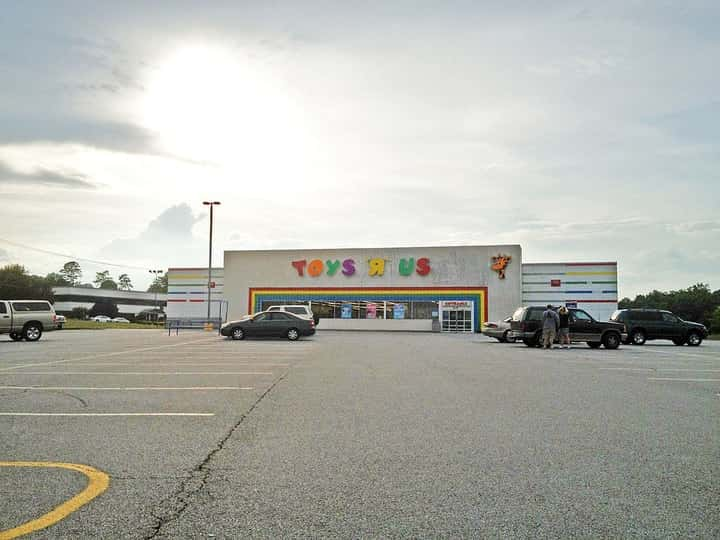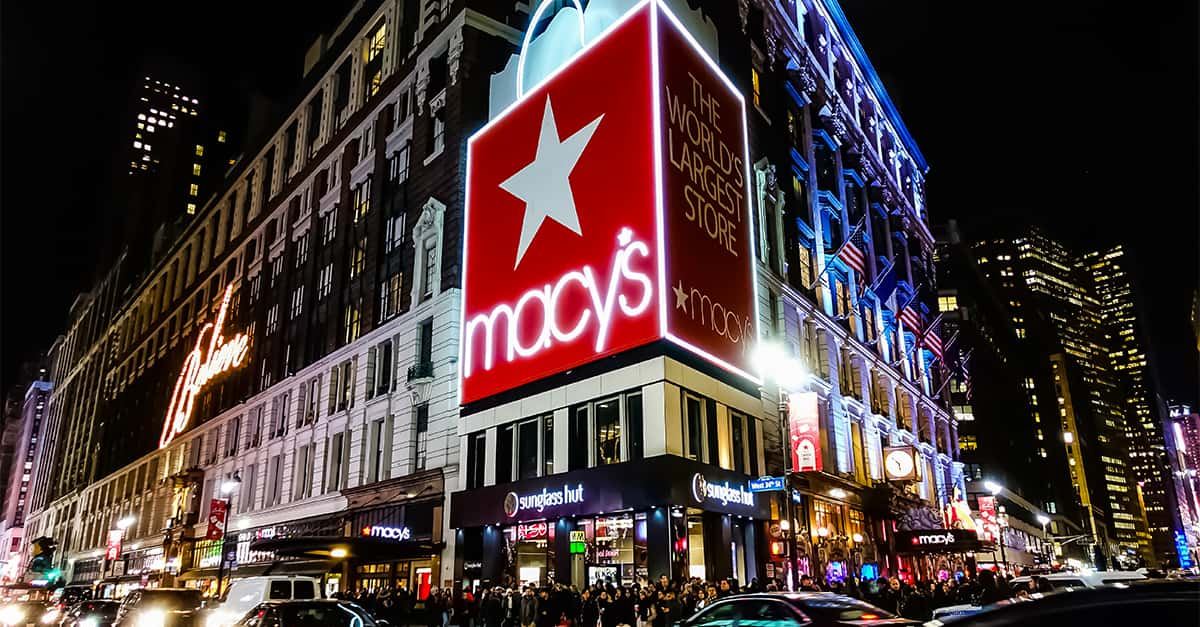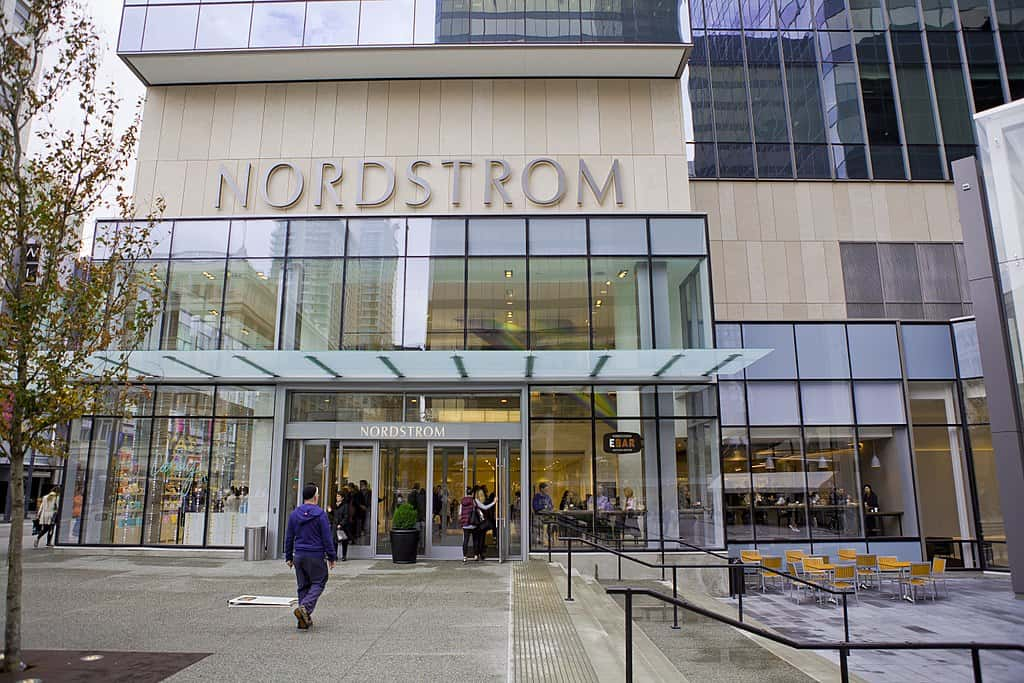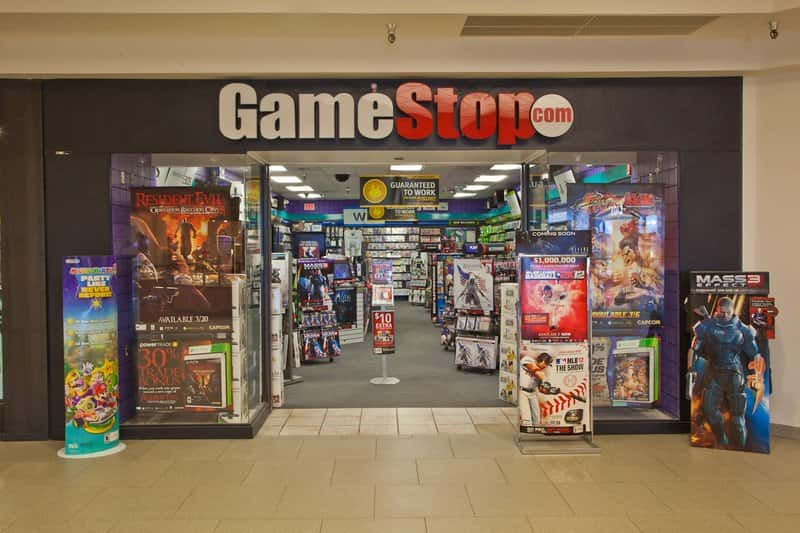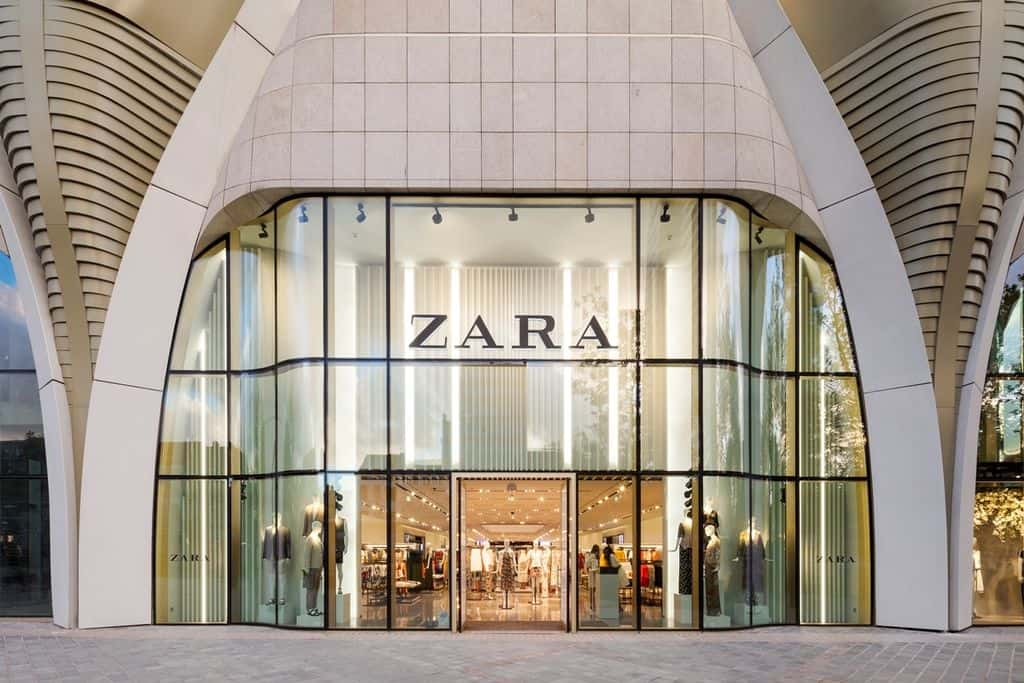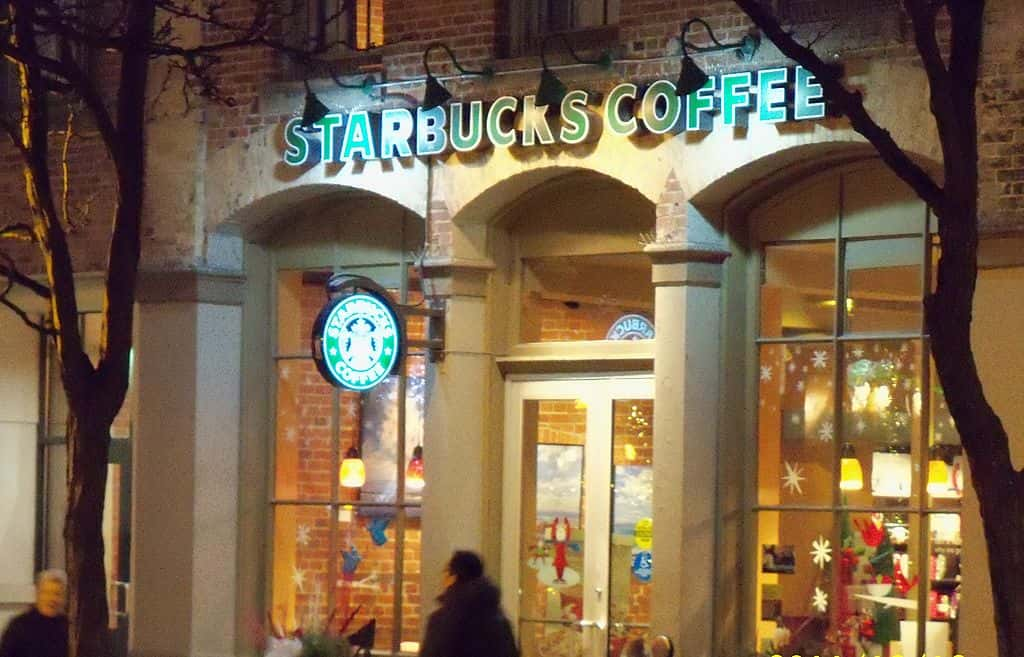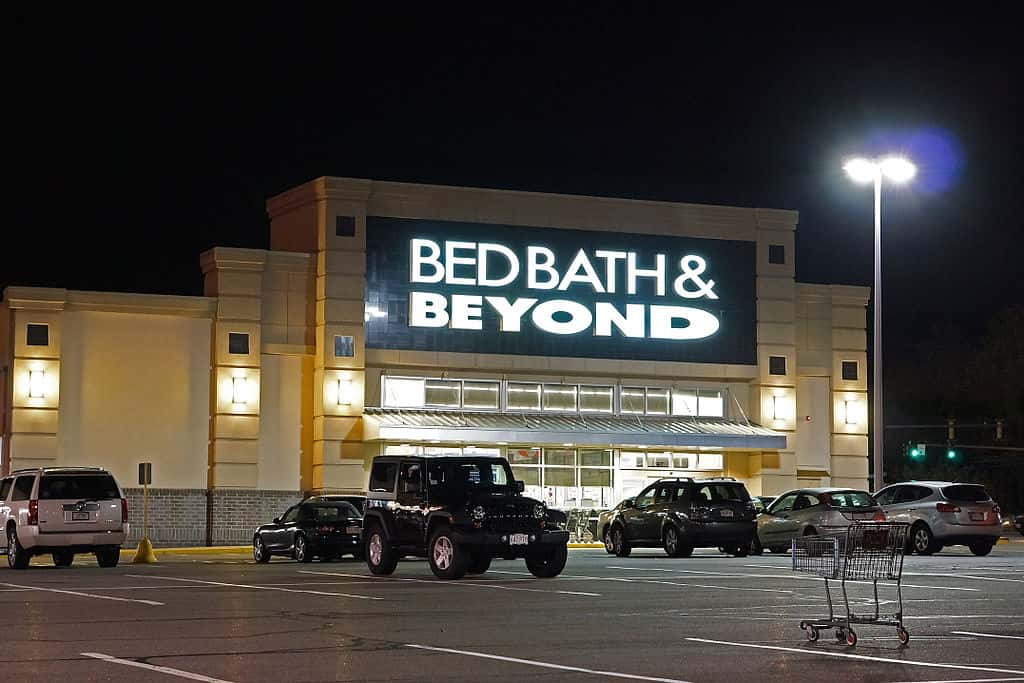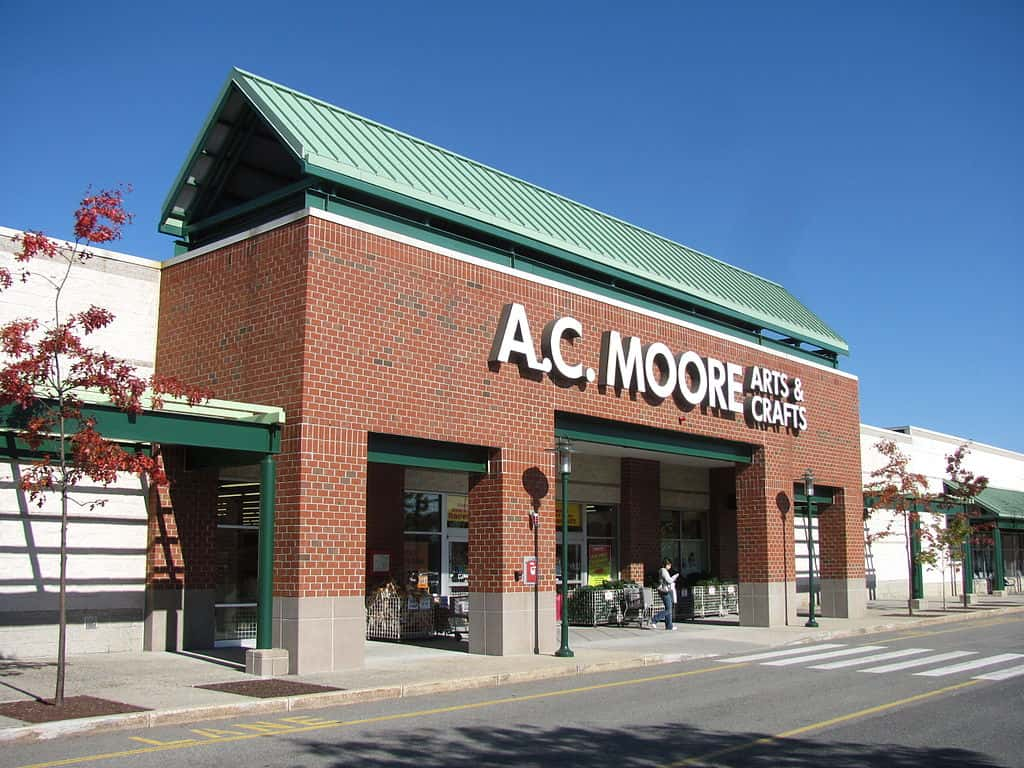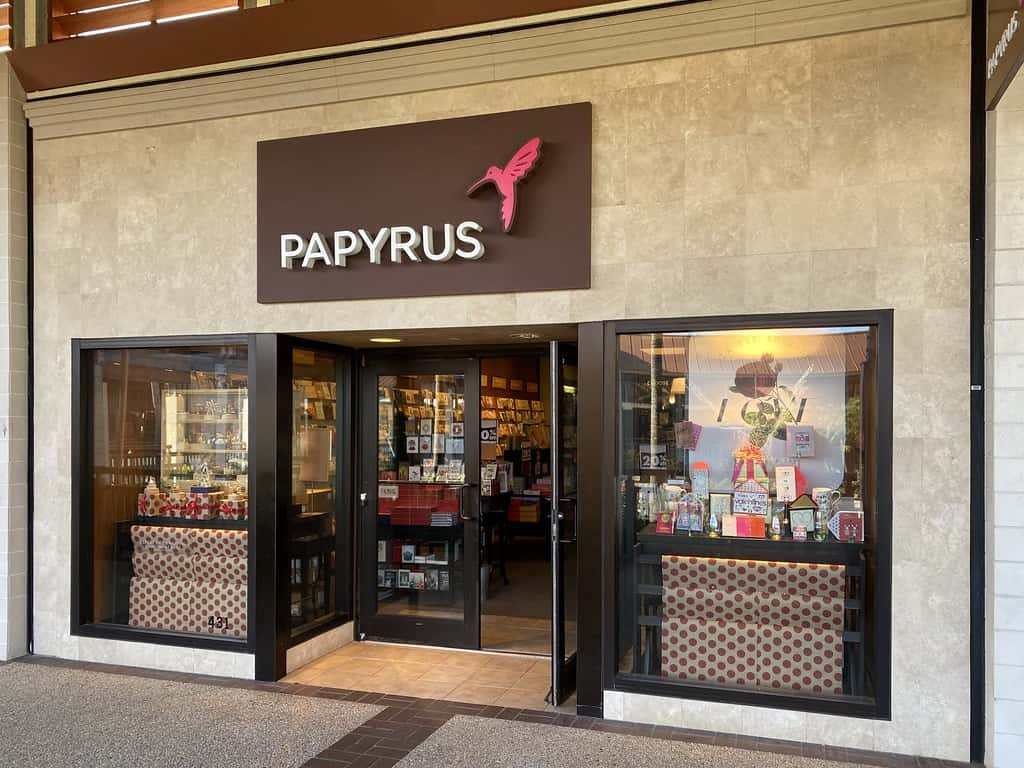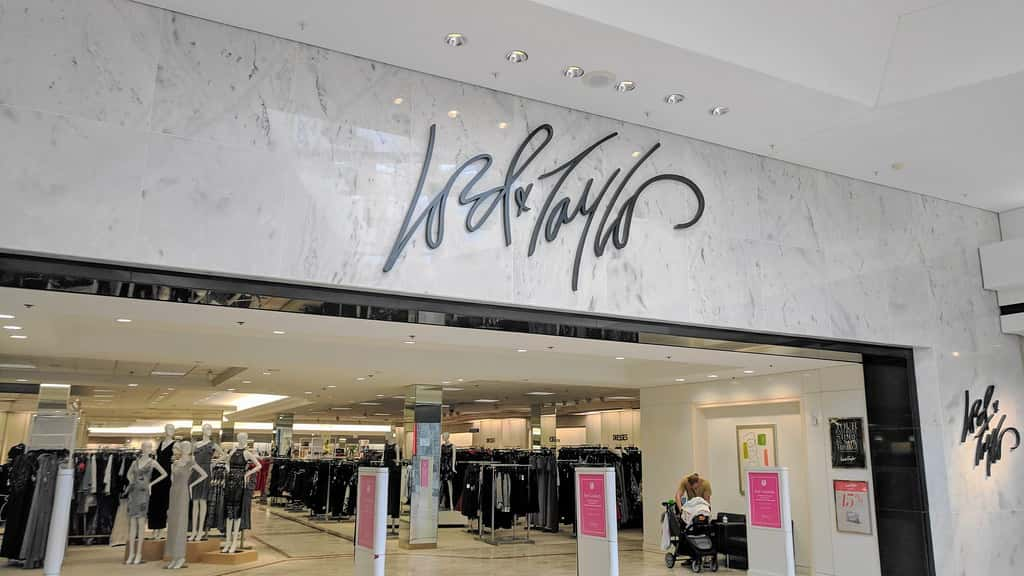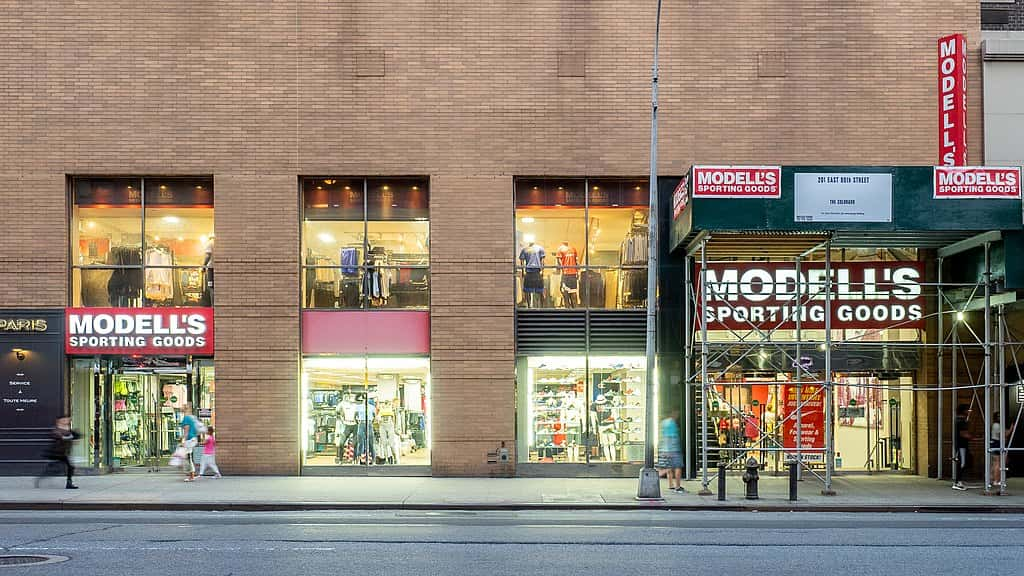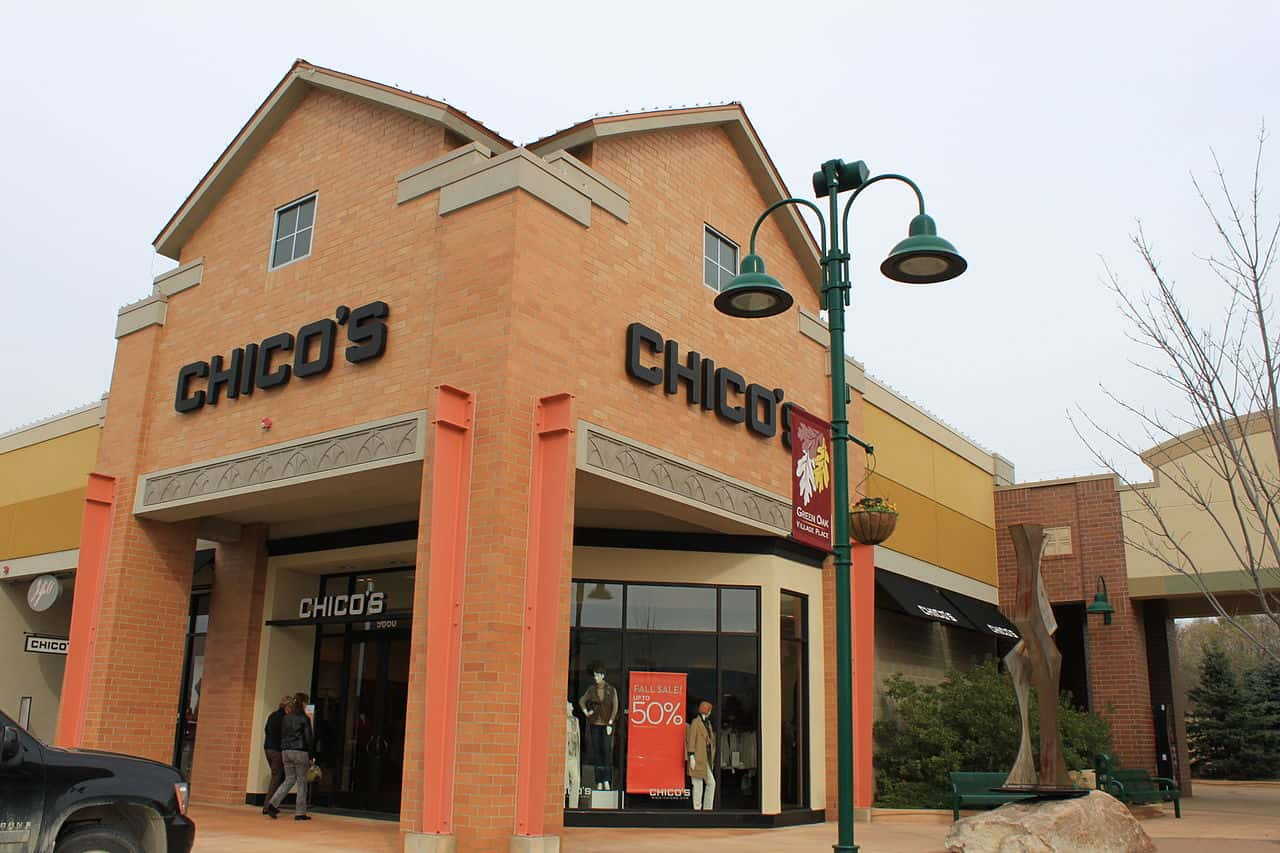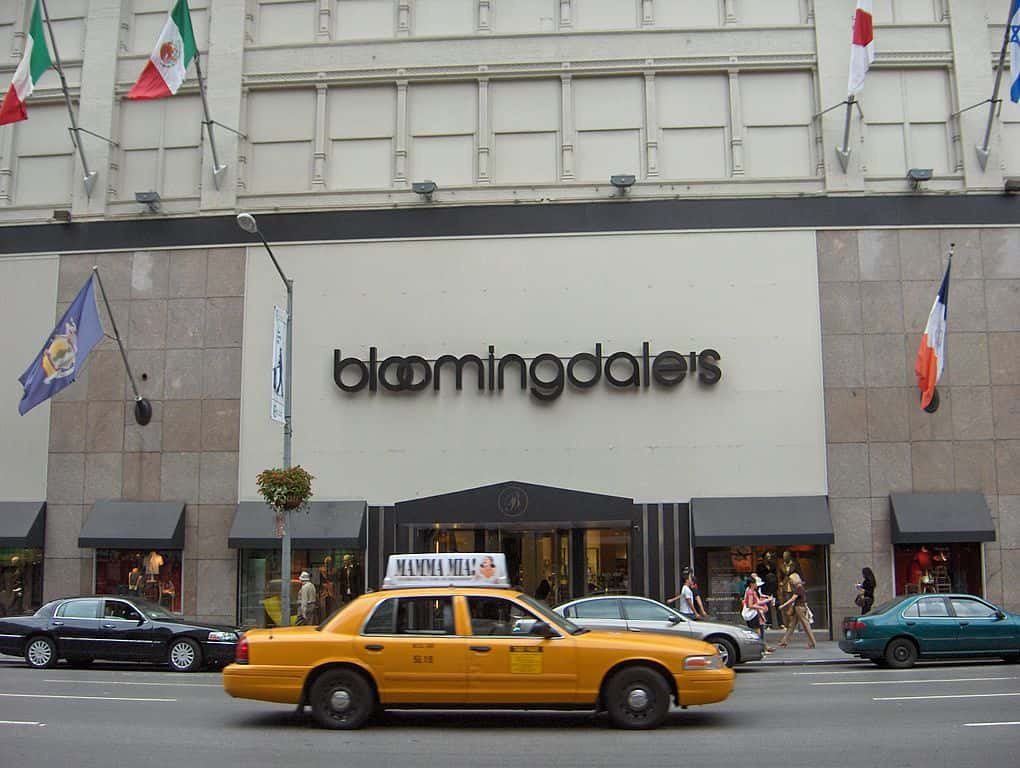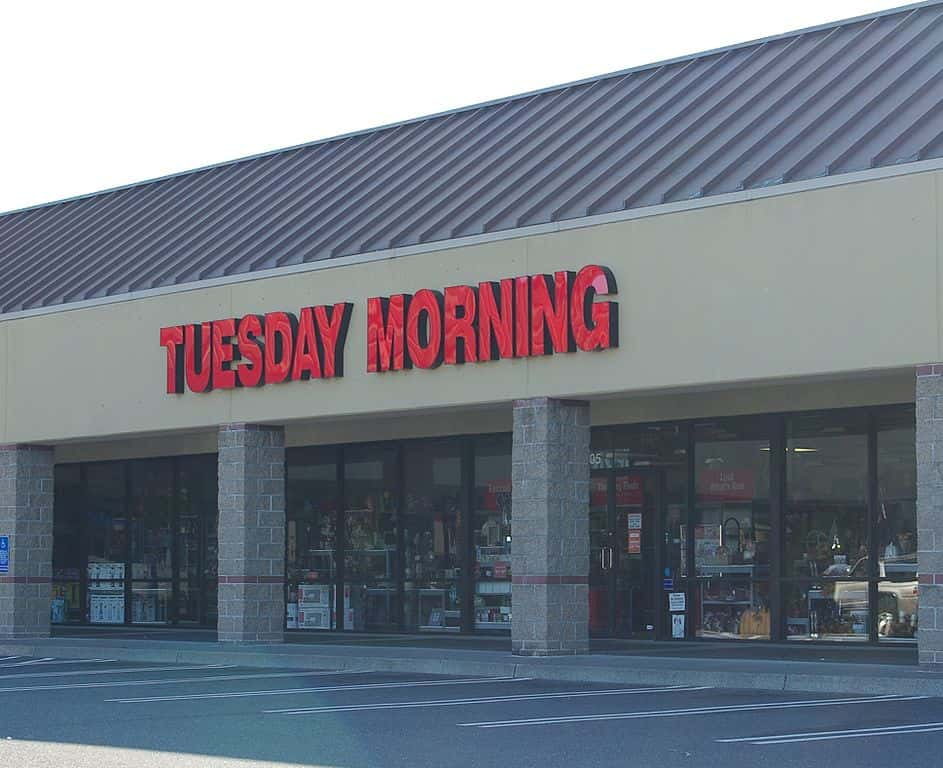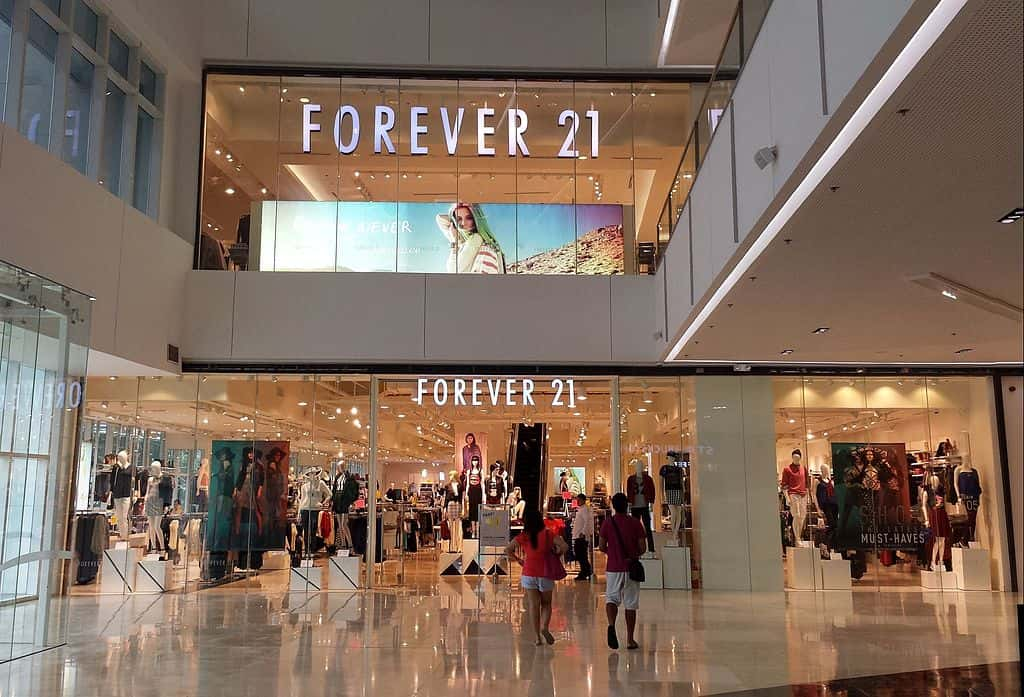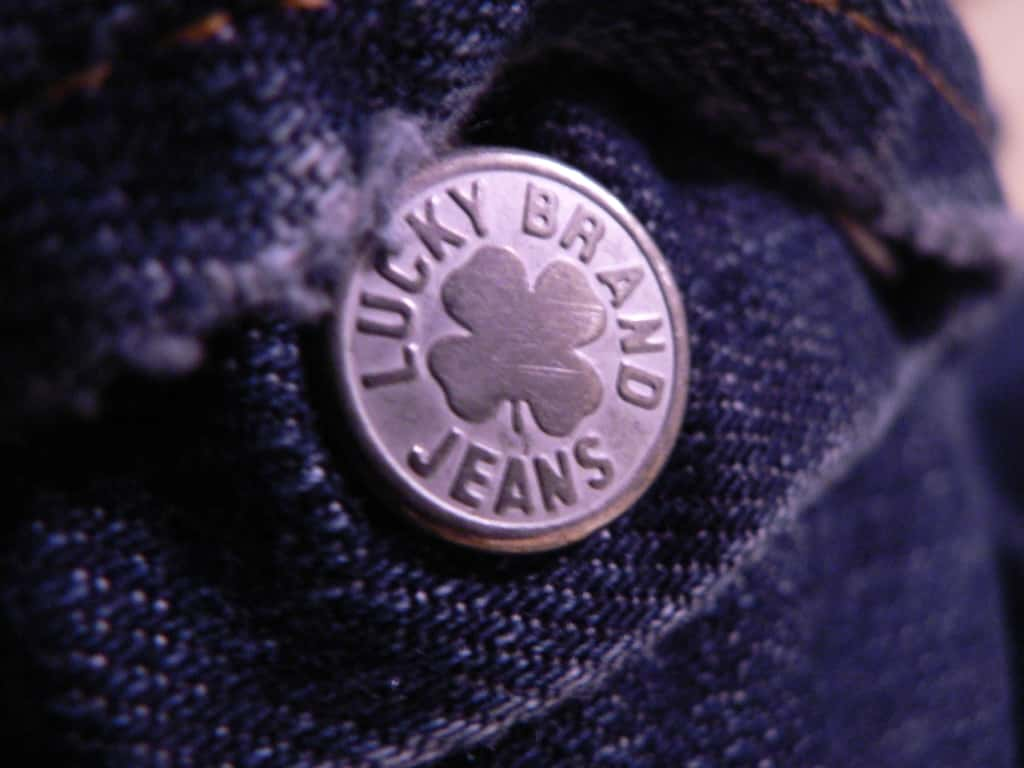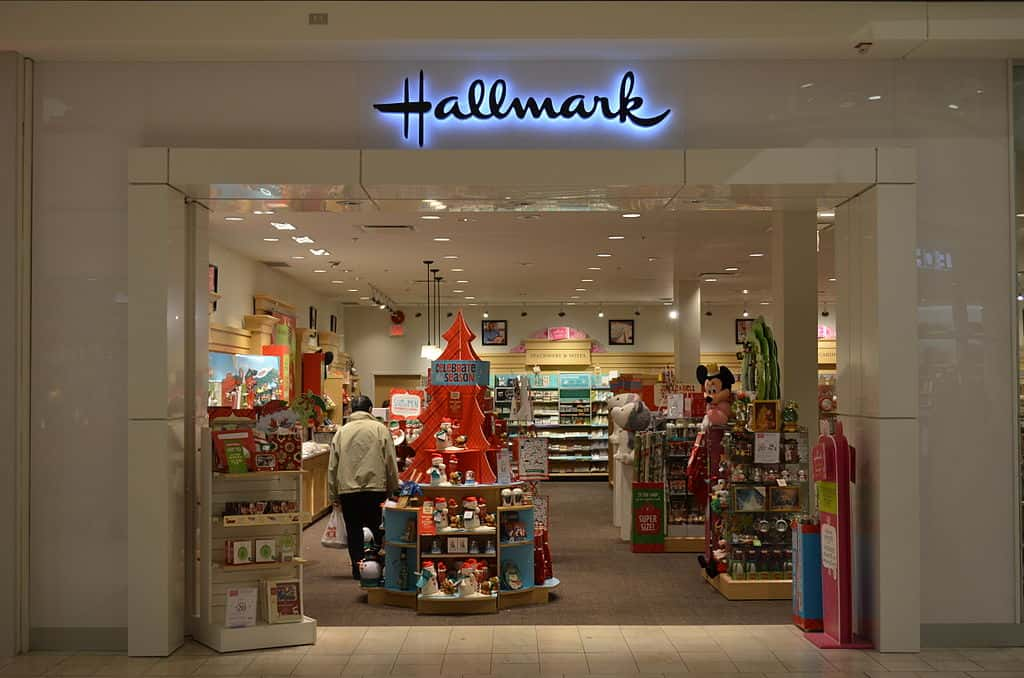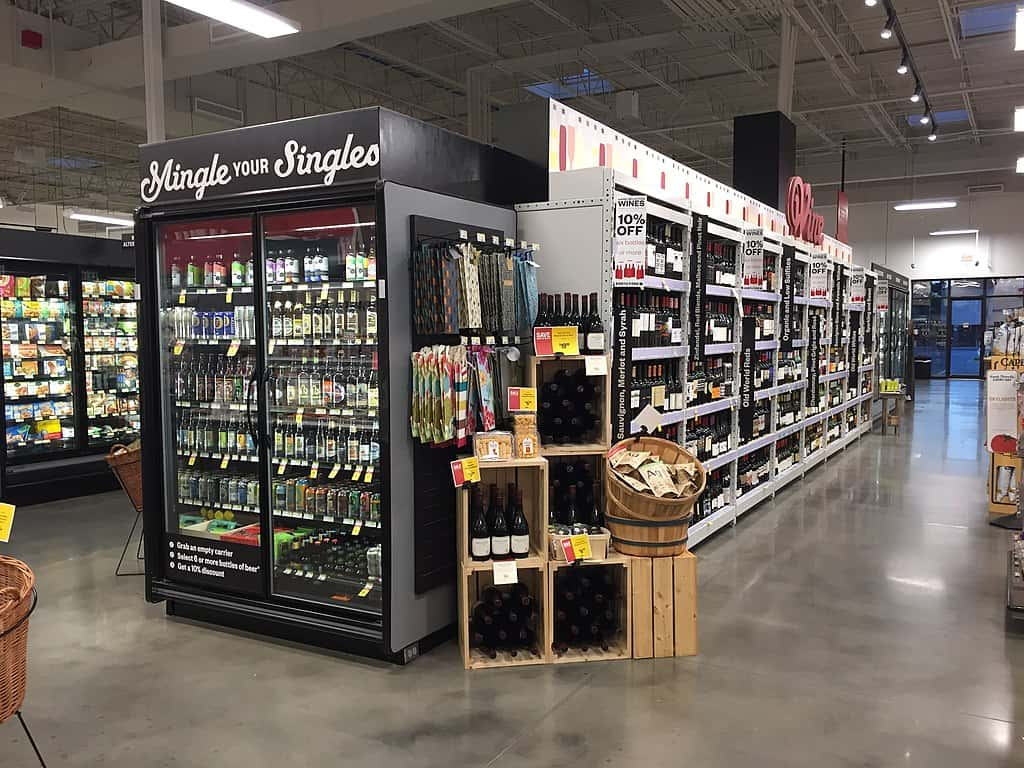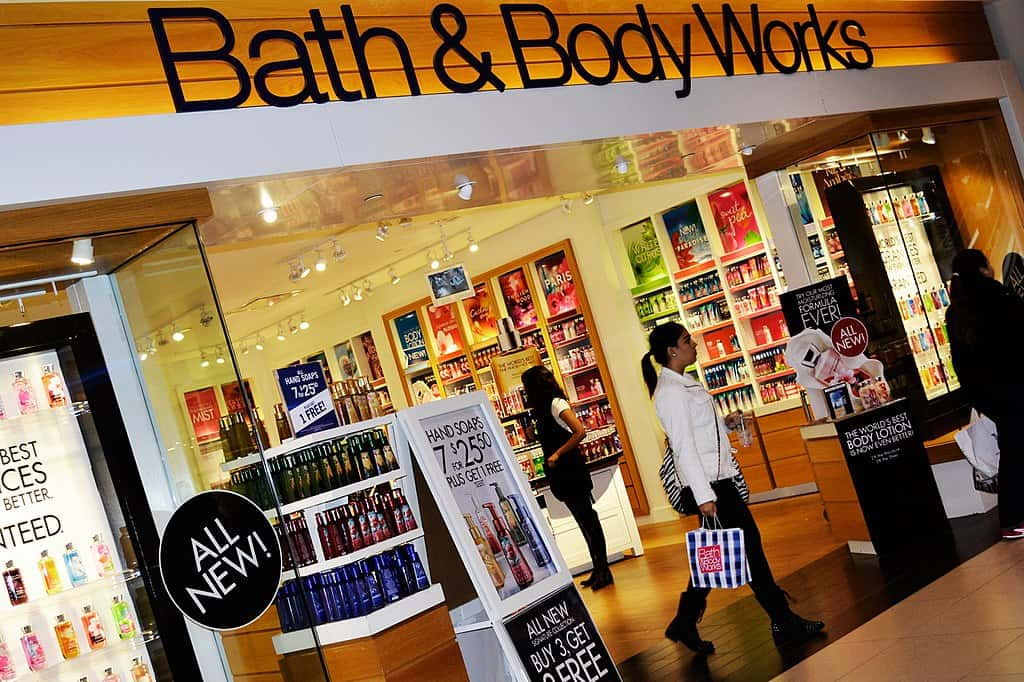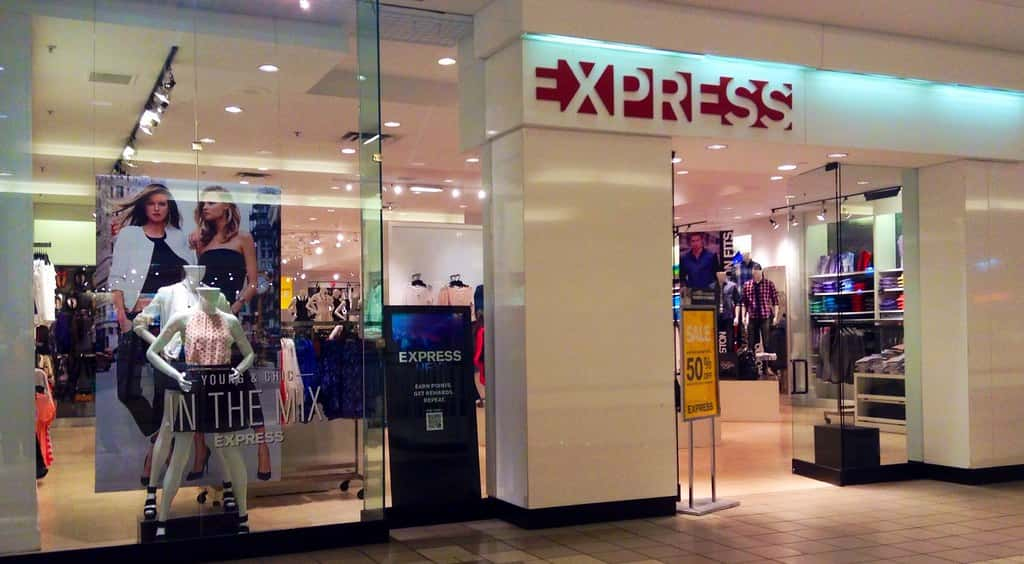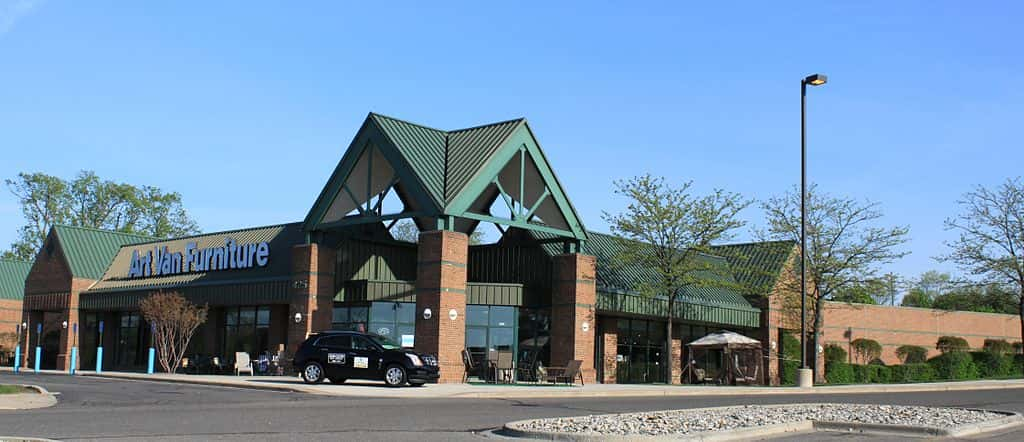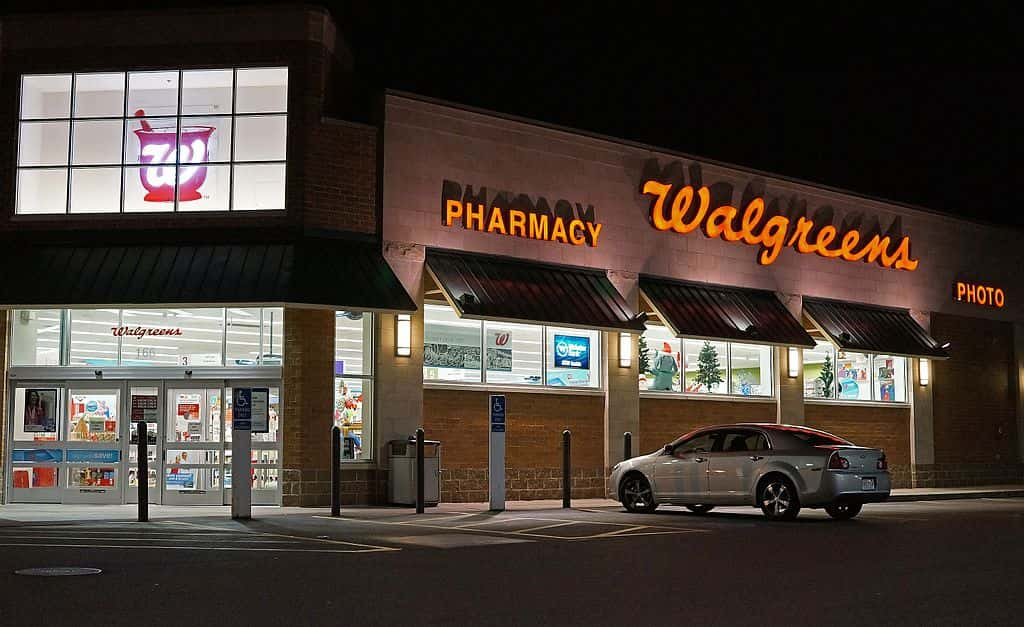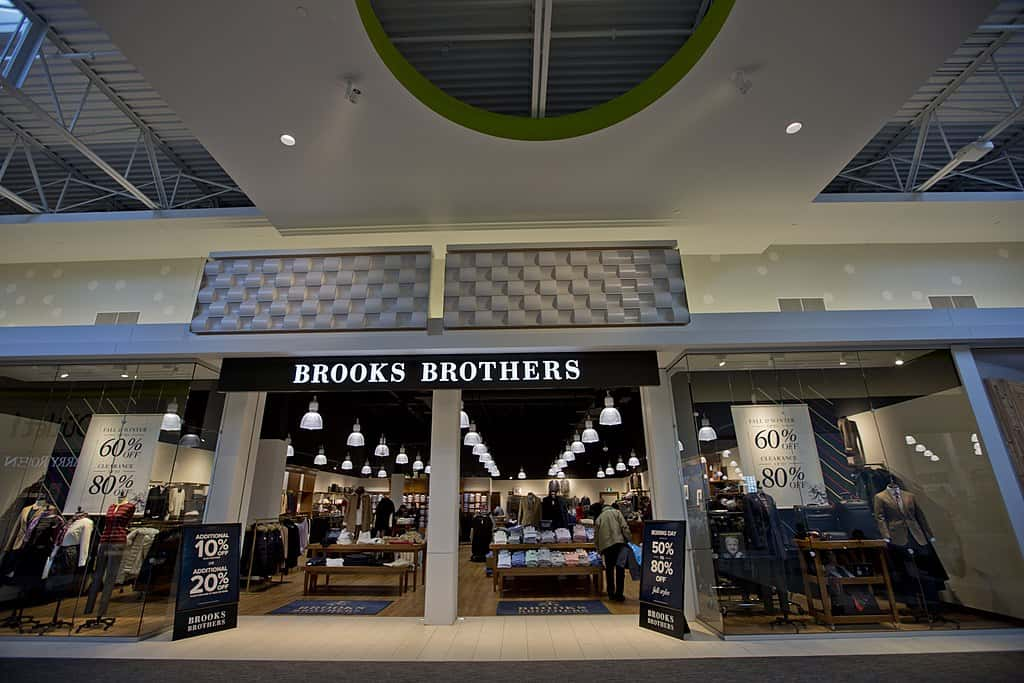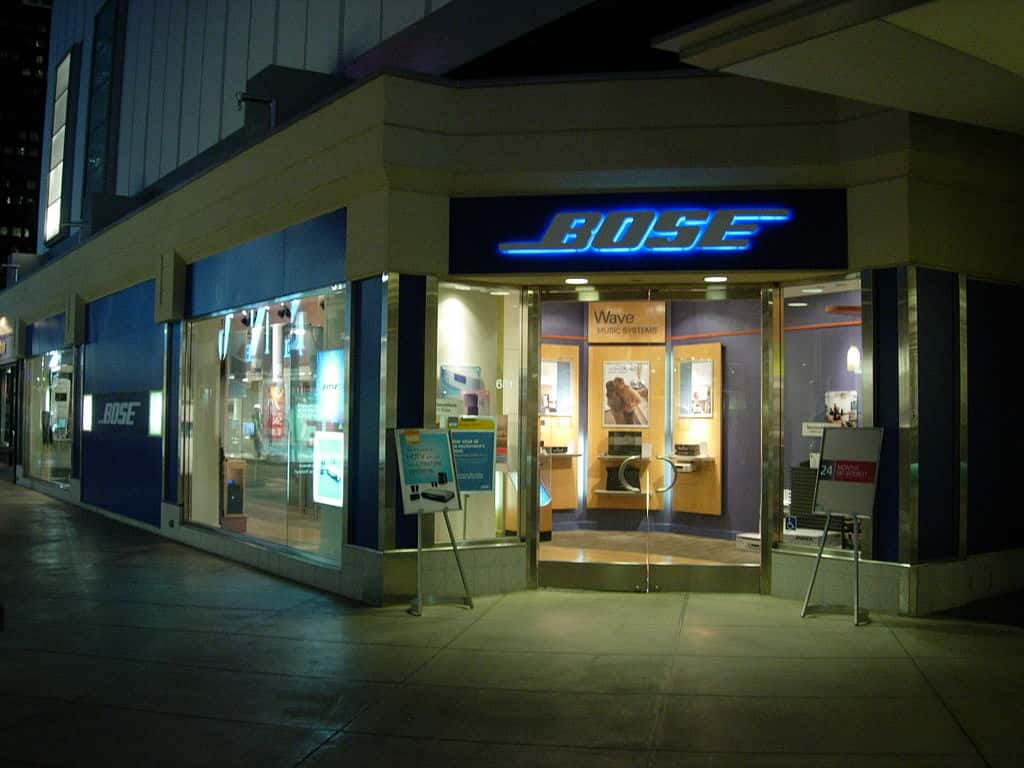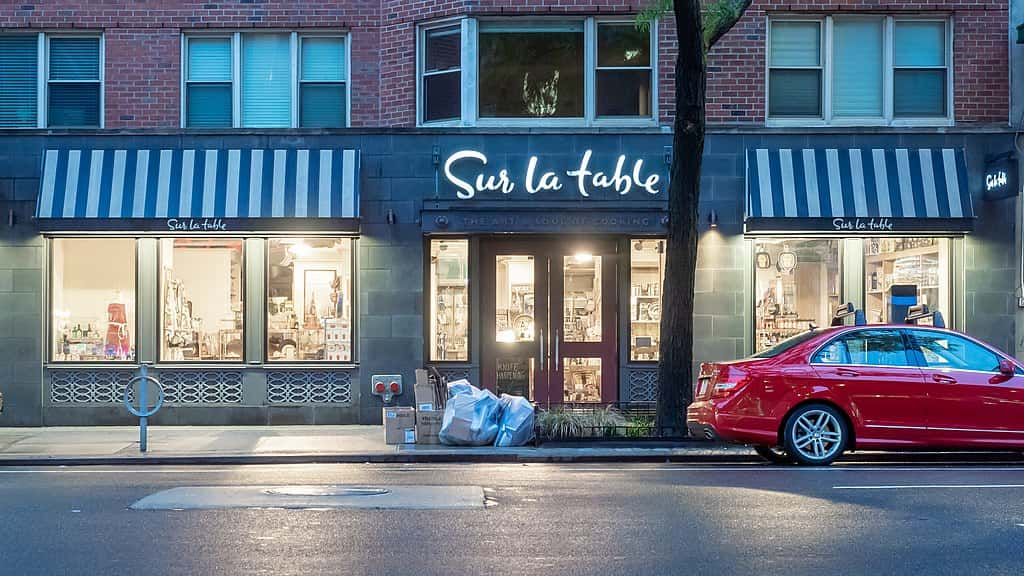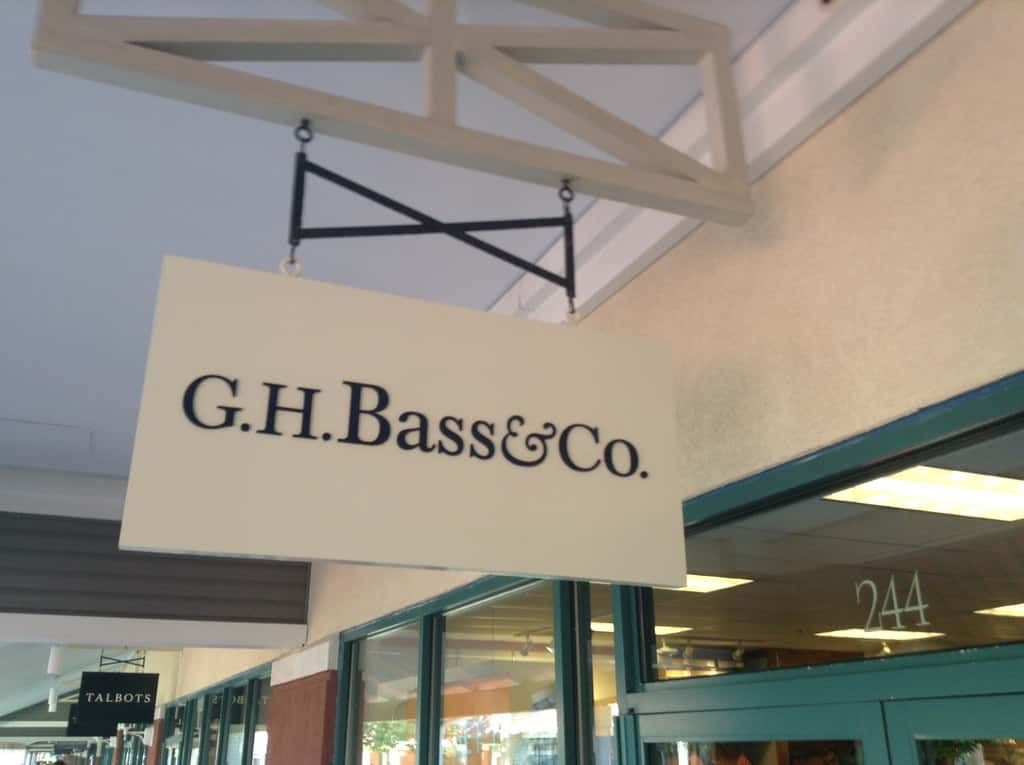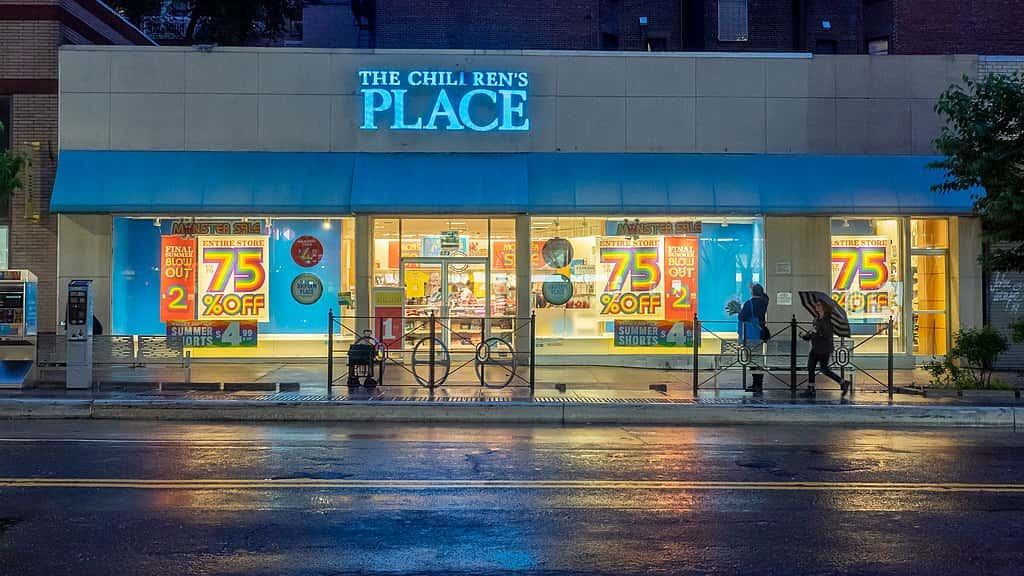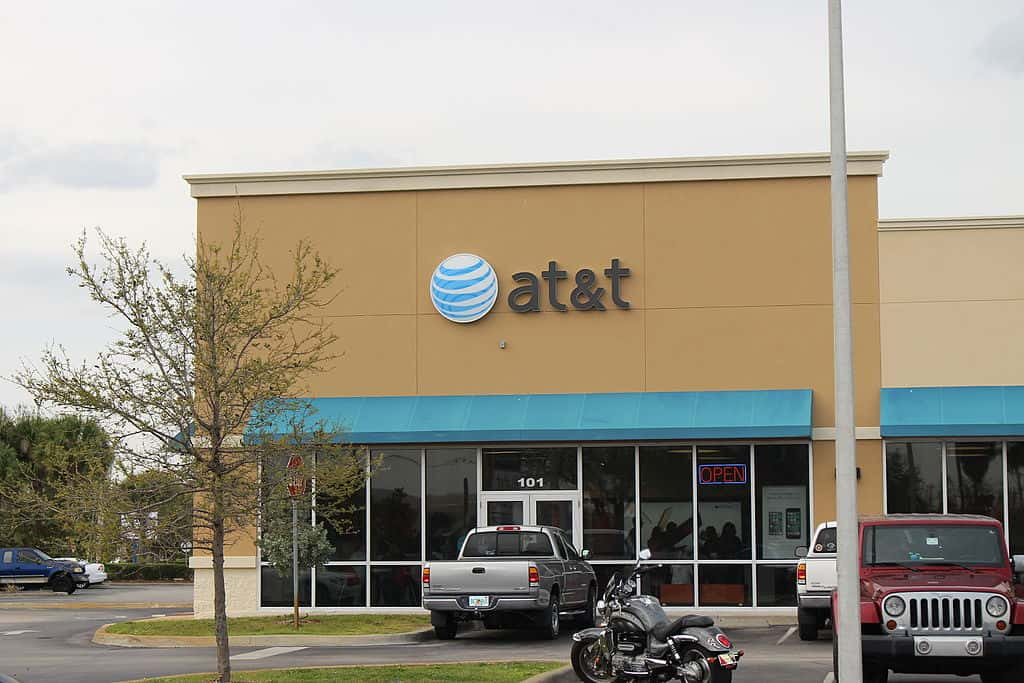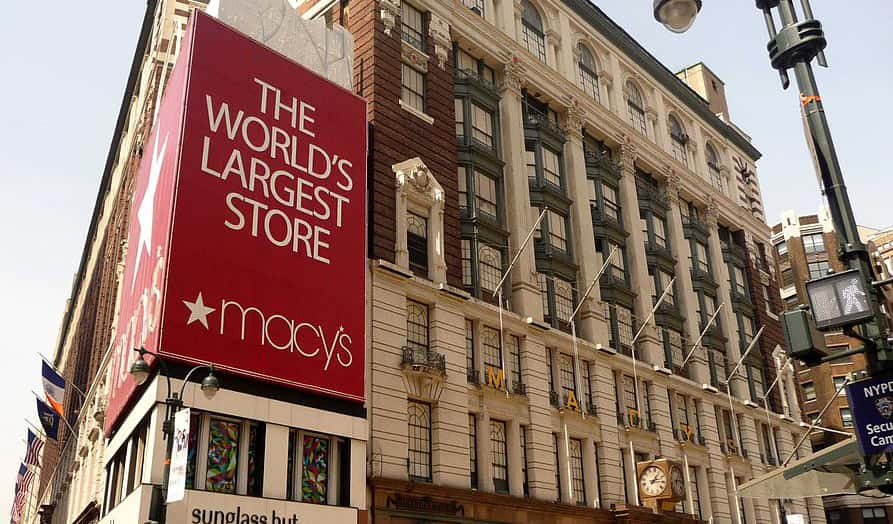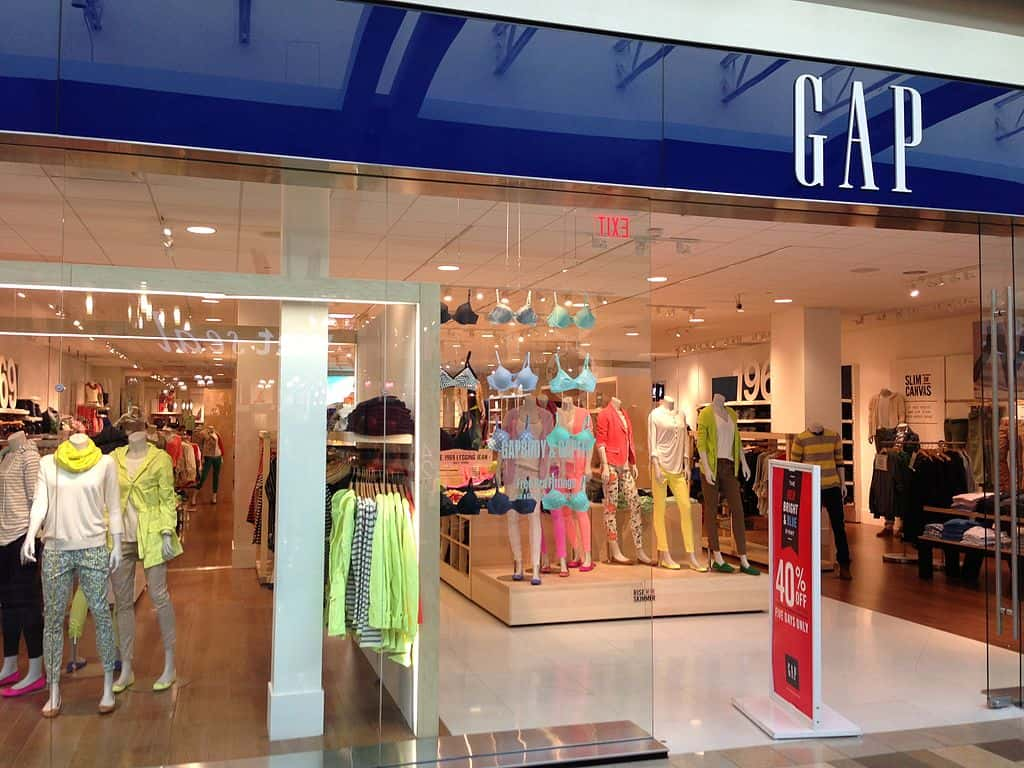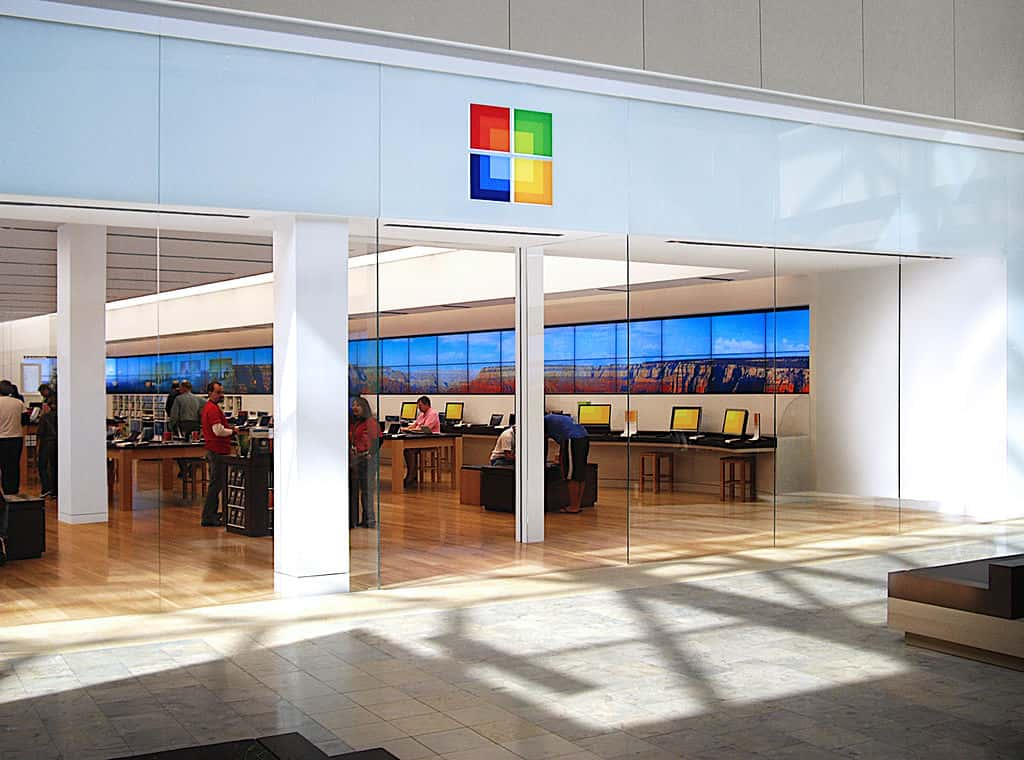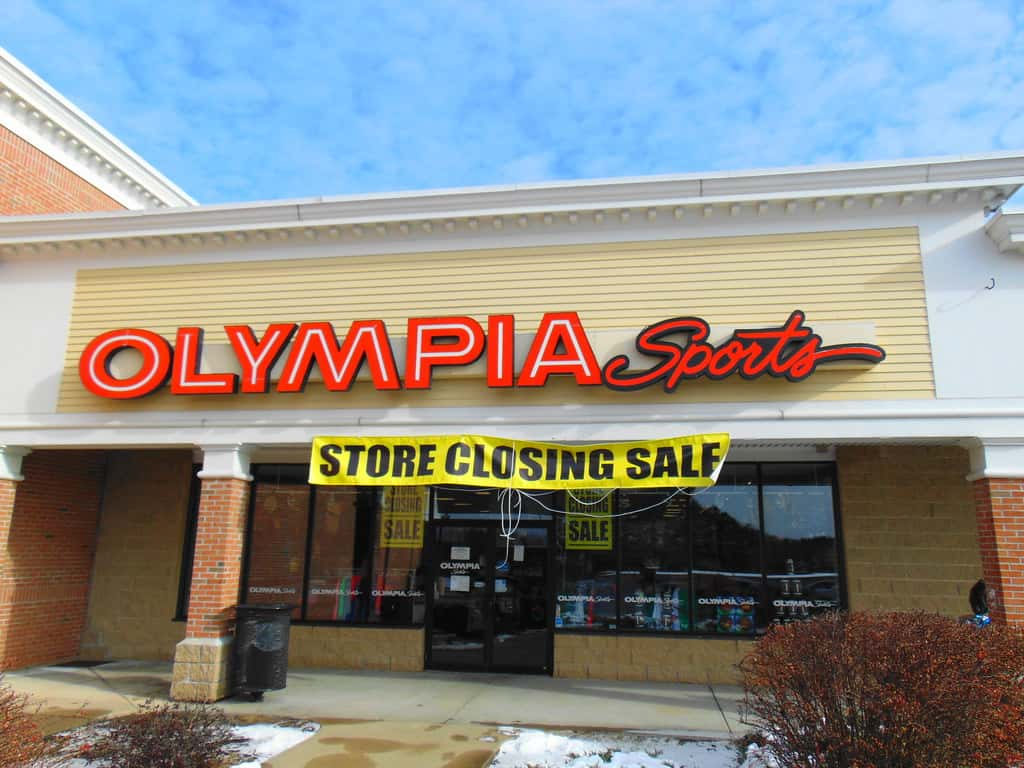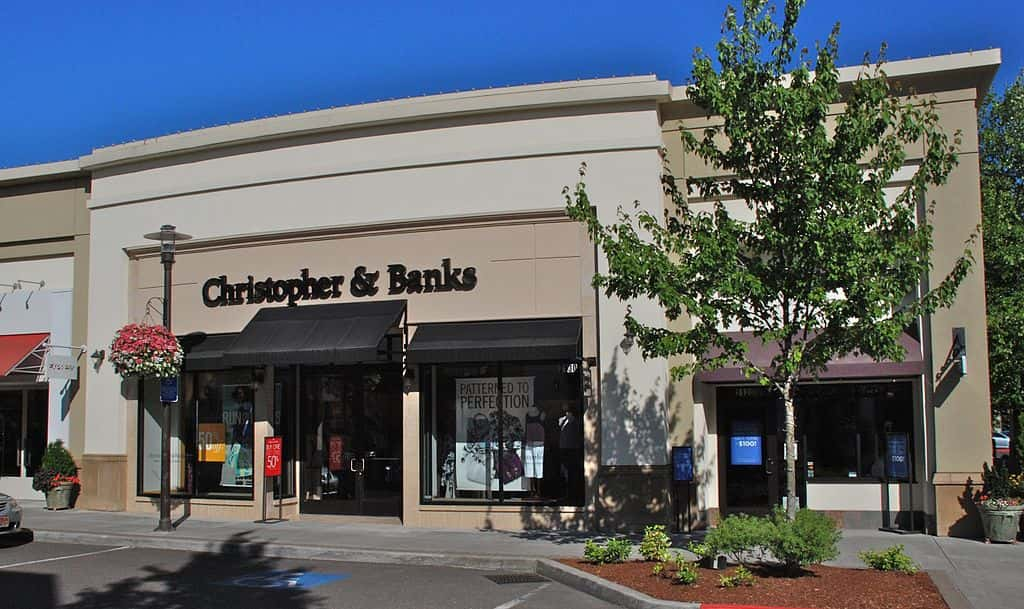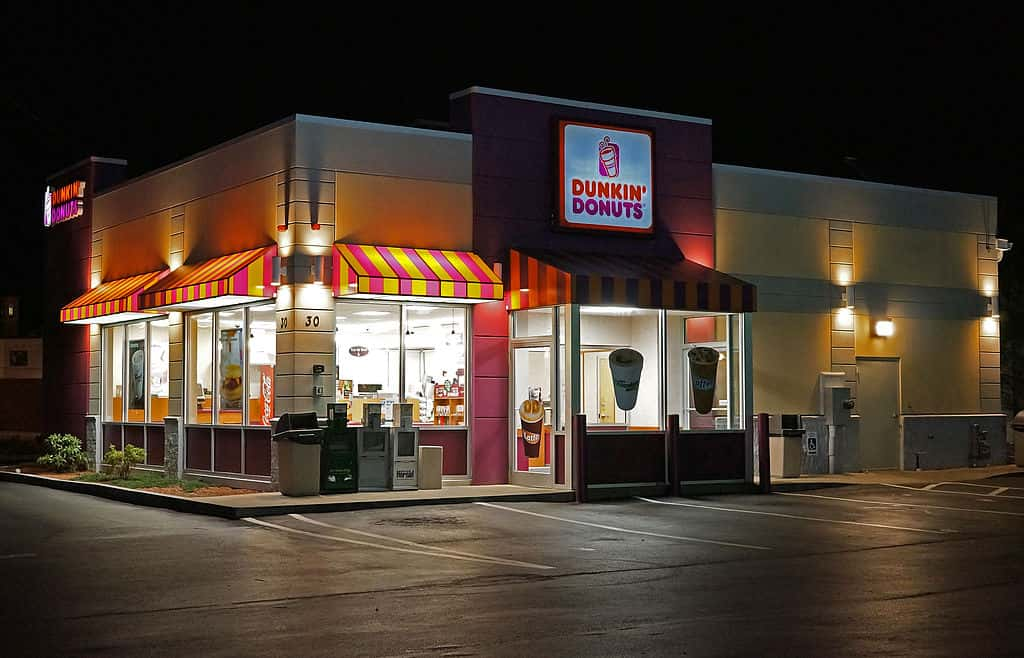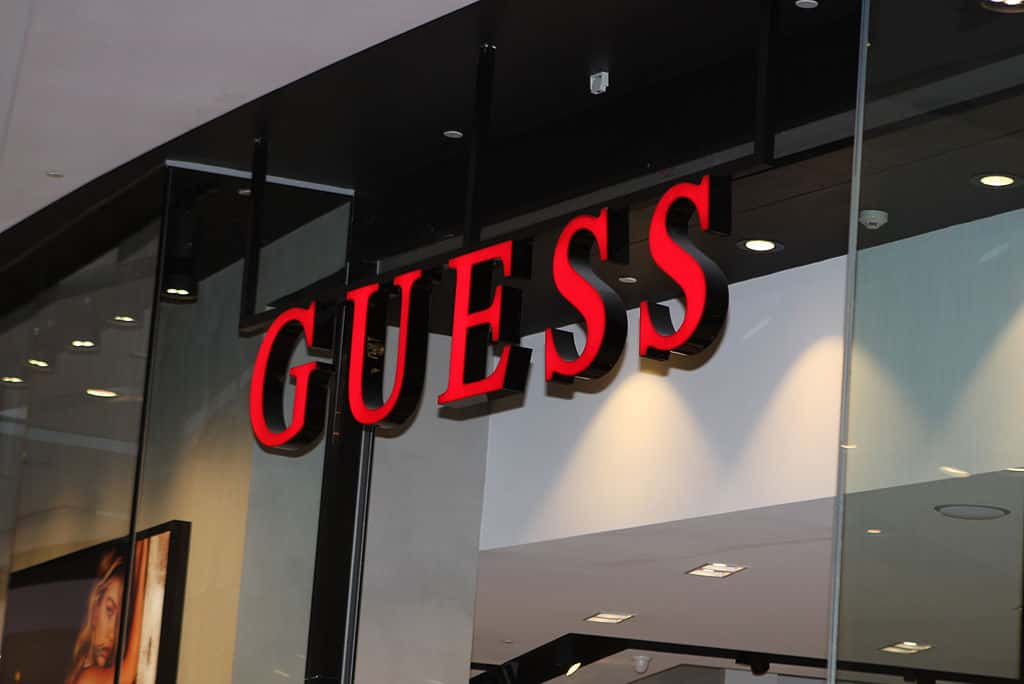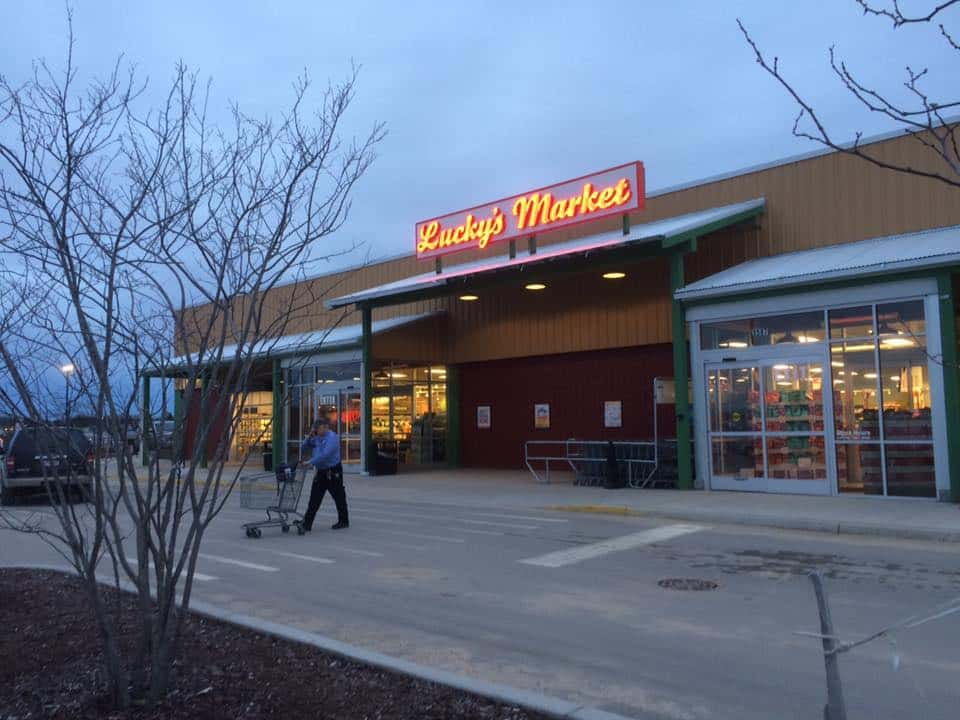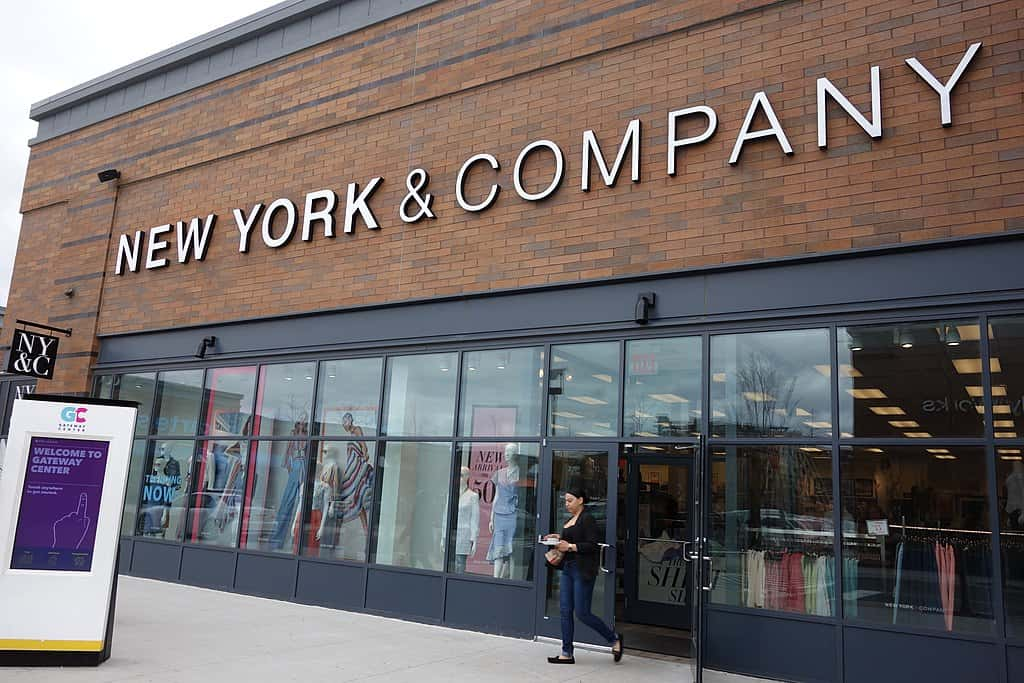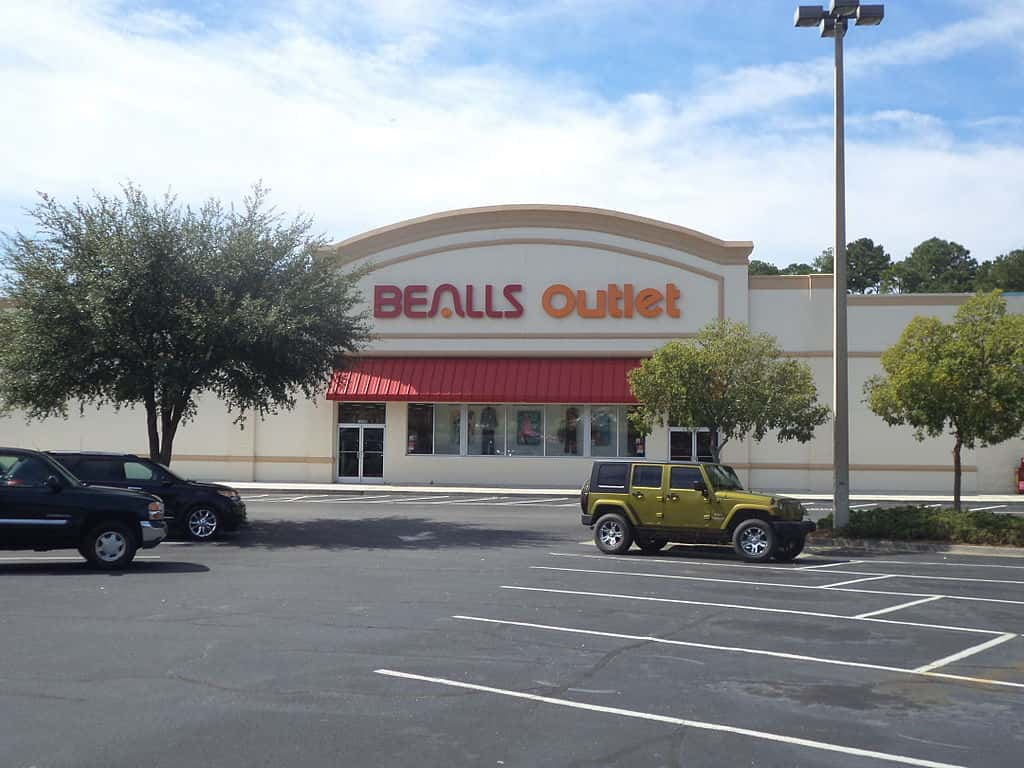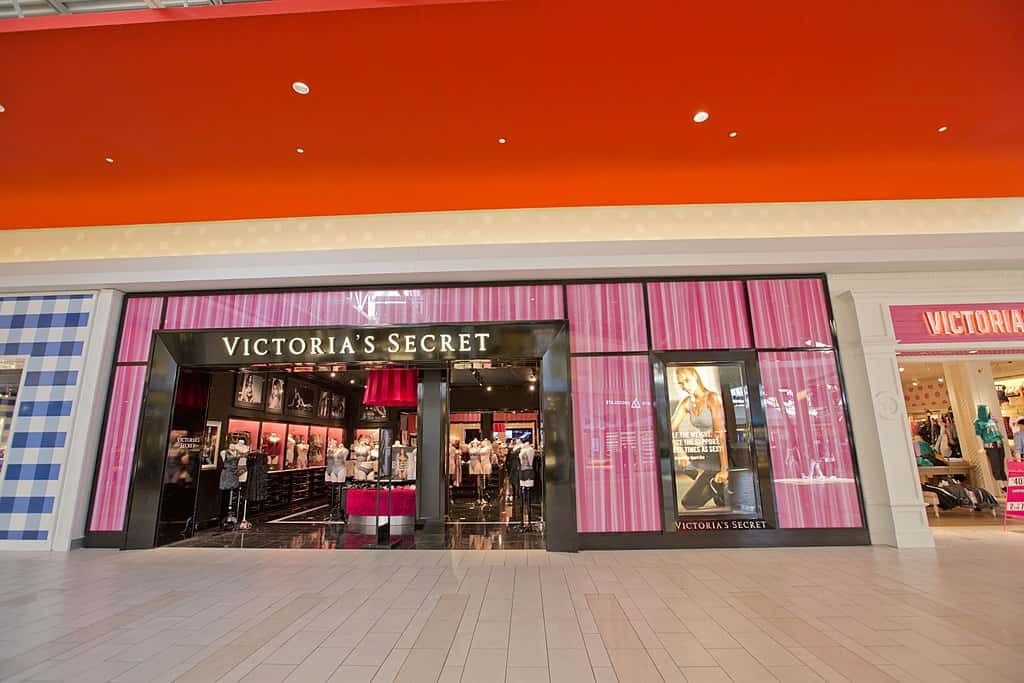Sadly, nothing lasts forever. With shops sitting vacant of customers for months and more people than ever choosing to make online purchases over visits to brick-and-mortar retailers, many large chain stores are feeling the pinch. From department stores to clothing retailers to specialty shops, everyone’s feeling the pinch, and in 2020 this means that thousands of chain store locations will close—and in some cases, even the whole chain may disappear or go bankrupt. From Macy's to Forever 21 to J. Crew to Dunkin', what’s happening to your favorite chain store this year? What stores are closing in 2020?
Nordstrom
This beloved luxury department store chain acquired the Jeffrey brand from its founder in 2005 but recently revealed that they will be closing those stores—and that’s not all. Nordstrom has over 100 locations. In June 2020, they announced that they’d be closing at least 16 of those stores. Previously, they’d kept a strong foothold as other department stores floundered in the face of the retail apocalypse, and their e-commerce presence was strong, but time finally got the best of them. However, continuing to boost their e-commerce and cutting costs associated with stores will help them weather the strom—sorry, storm.
GameStop
This retailer of video games, consoles, and other electronics absolutely dominates the market, with some 5,000 locations—but here’s the problem with that: there are simply too many stores, and in some cases, they end up competing with each other. To tackle this issue, GameStop, which also owns the EB Games imprint, will be closing a number of their retail locations in 2020—some 300 of them, approximately.
Zara
This European clothing retailer offers fashion-forward looks ripped straight from the runway at affordable prices—but due to recent events, sales have gone way down, forcing parent company Inditex to announce the closure of a jaw-dropping 1,000 to 2,000 stores over the next two years. They have said that they hope to expand their online presence, but it’s hard to imagine a mall trip without a stop in Zara—and these massive closures may well change the entire shopping landscape in the future.
Starbucks
What’s a shopping trip without a quick pop into a Starbucks for a grande vanilla latte? Well, with fewer people visiting brick-and-mortar stores—or even going out in the first place—that’s fewer visits to everyone’s favorite coffeehouse. It seems like there’s a Starbucks on every corner, but in June 2020, the chain announced that they’ll close up to 400 locations in North America.
However, don’t count them out—they’re using this opportunity to change the way their stores operate, trying out new formats and new, more convenient ways to streamline pickups. It doesn’t seem like the world will be going back to normal anytime soon—but it does look like Starbucks will adapt to it.
Sears & Kmart
Kmart purchased the Sears brand for $11 billion way back in 2004, but things haven’t exactly been going great since then. Earlier this year, they closed one-third of their retail locations in the US, bringing the total number of Sears and Kmart locations to 182 down from 278. Yikes. This follows Sears’ close call with bankruptcy in 2018. It might be the final nail in the coffin for these beloved chains that were likely a fixture of many of our lives growing up.
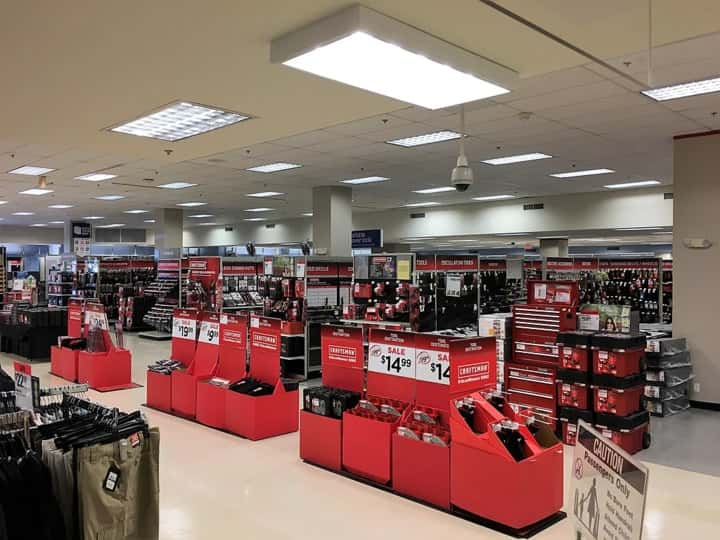
Bed, Bath & Beyond
It seemed like Bed, Bath & Beyond was untouchable, but after facing mounting losses, the home goods retailer made a shocking announcement: they’d be closing one-fifth of their stores in order to stay aboveground during this unprecedentedly rough time. They'll close about 200 stores, which the retail giant claims will save them upwards of $250 million per year. With tightened wallets and fewer students moving into dorms this year, let’s hope their gambit works.
A.C. Moore
This arts & crafts retailer was founded in 1985, but it finally succumbed to declining profits in November 2019 and closed all of its stores—but despair not, fellow crafters, as A.C. Moore sold many of its leases and a distribution center to its former competitor, Michael’s, which is still going strong.
Papyrus
Papyrus stationery and greeting cards offered a stylish alternative to Hallmark with a hand-crafted effect, but even that couldn’t save the retailer in the dire days of 2020. The Schurman Retail Group, which owns Papyrus, also owns Carlton Cards, and in January it was announced that they’d close all North American locations of both card shops. Our condolences.
Lord & Taylor
The decline for Lord & Taylor was slow. Hudson Bay Company, the oldest merchandising company in the world, acquired the luxury department store chain in 2008. A decade later, they announced that they’d be closing approx. 20% of Lord & Taylor stores, including the flagship store on Fifth Avenue in New York City, which shuttered in 2019. An acquisition by Le Tote seemed like it might save L&T—but then it was announced all stores would liquidate.
The story didn’t end there, however! Le Tote announced that it will attempt to keep all stores up and running whenever they can reopen. Expect more twists for this classic brand in the future.

History's most fascinating stories and darkest secrets, delivered to your inbox daily.
Modell’s
This Northeastern US retailer of sporting goods and apparel saddened fans when it was announced in May 2020 that they’d be filing Chapter 11 bankruptcy and liquidating their stores. As of now, they’re holding blockbuster going out of business sales in their brick-and-mortar locations, so stock up sports gear while you can.
GNC
Nutrition and healthy living are still the focus of many consumers, but sadly, this hasn’t been reflected in the profits for supplement specialty chain GNC. In 2019 they announced plans to shutter about half of their some-800 locations in shopping malls, citing declining foot traffic. This is part of an overall closure of 900 GNC stores.

Rockport
Footwear brand Rockport, known for their durable and comfortable shoes, declared bankruptcy in 2018—and while they were down, they weren’t out. After some transfers of ownership from equity firm to equity firm, they are back on their feet again—pun intended—but sadly, all of Rockport’s brick-and-mortar stores fell victim to their losses, and have closed.
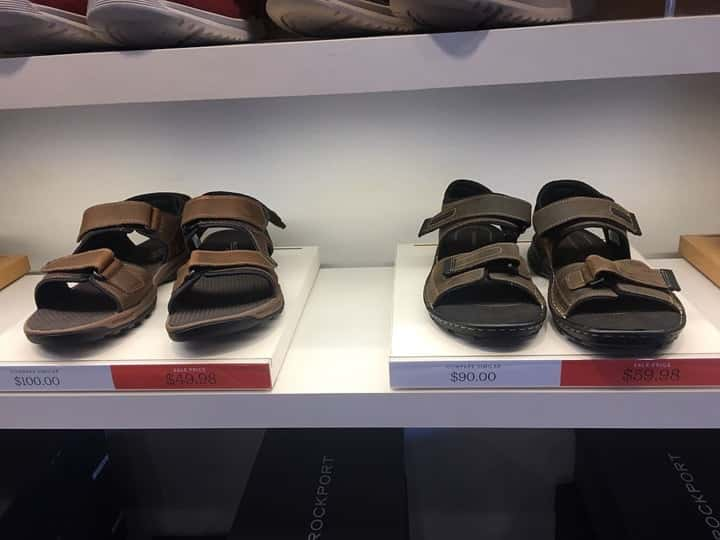
Chico’s
Never heard of Chico’s? This clothing retailer named for a friend’s parrot also owns White House Black Market, Soma, and TellTale. They launched TellTale, an online underwear brand in 2019, and this is indicative of their strategy going forward, as they close over 250 stores in order to focus on their e-commerce sales.
CVS
If it seems like there’s a CVS on every corner, that’s because there basically is, with close to 10,000 locations in the US. While about 40 closed in 2019, 22 more will join their ranks this year—but that’s a drop in the bucket for the popular pharmacy. They also have a plan for the future to stay relevant in this changing world with their MinuteClinics, which offer basic walk-in medical services to CVS customers. It’s a good use of their prolific real estate footprint in these unprecedented times.
Bloomingdale’s
Iconic luxury department store Bloomingdale’s—or Bloomie’s, to its devotees—has been around since 1861 and has seen its fair share of ups and downs. Its currently owned by Macy’s, who face problems of their own. While only one store will be closing in 2020, the chain is but a shadow of what it used to be, with about 35 locations left.
Tuesday Morning
Tuesday Morning is a discount retailer that may have already looked like it was holding a perpetual going-out-of-business sale—but looks can be deceiving, at least until now. Nobody likes Mondays, but it looks like Tuesday ain’t too popular either, as the chain had to declare bankruptcy this year. They’ll close about 230 of their approximately 700 stores, cutting prices even more at those locations—that’s deep discount squared, essentially. Here’s hoping the remaining Tuesday Morning stores make it through the rest of the metaphorical day.
Pier 1 Imports
Pier 1 Imports blew up in the 90s, offering the chance to add a gauzy, Bohemian flair to your home. They’ve since become one of the largest home goods retailers in the game, but the last few years have been a wild ride for Pier 1 Imports. After closing a number of stores and bringing in a new CEO who promised to shake things up, it looked like the tides were turning—but then there was the matter of millions of dollars in debt due.
Declining sales caused Pier 1 to announce they’d be closing half their stores in the early part of 2020, on top of reducing headquarter staff and shuttering distribution centers—and that was before stores were forced to shut their doors to customers across the country. Who knows what comes next for this beleaguered retailers.
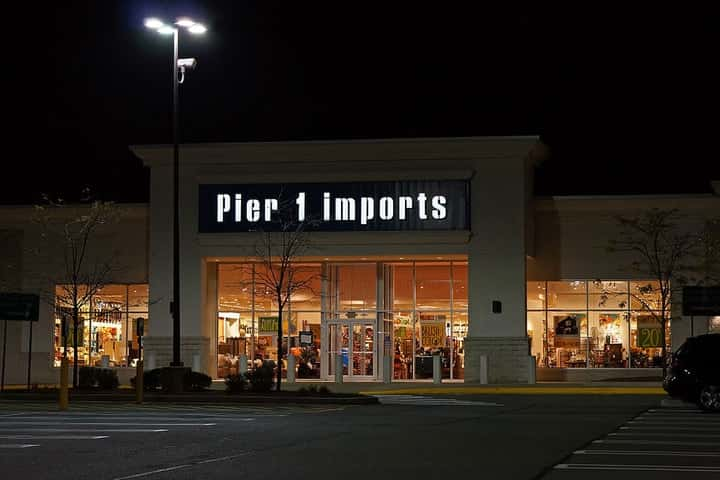
Forever 21
When Forever 21 announced that they’d be closing all Canadian stores, young shoppers were shocked—it had quickly conquered malls across the country and seemed invincible. At the same time, they filed for bankruptcy protection and planned to shutter 178 stores across the US. They began to negotiate with landlords, and surprisingly, they rolled back their previous announcement and said that they’d only close 88 stores. What a twist! They’re still going strong online, for any of us in denial that we aren’t actually forever 21.
Lucky Brand
Sadly, luck has finally run out for long-running denim maker Lucky Brand. They’re one of the most recent retail casualties, and in July 2020 it was revealed that they’d close about 13 of their 200 stores across the US. That’s not many, but they’re also filing for bankruptcy, so who knows what the future holds for the iconic denim brand.
Hallmark
Where’s the thinkpiece blaming the demise of paper cards on the millennial generation? While it hasn’t quite gone the way of competitors Papyrus and Carlton Cards, Hallmark is hurting in 2020 and will close at least 16 of their stores in the first half of the year. Should we send them a sympathy card or is this more of an occasion for a get well soon card?
Earth Fare
While department stores, apparel retailers, and home goods stores have been some of the hardest-hit by the retail apocalypse, you rarely hear about grocery stores floundering—after all, people gotta eat! But at the same time, smaller organic grocery stores have to go head-to-head with Whole Foods, which has that Amazon-Bezos money behind it. After more than 40 years in the organic food game, they gave up in 2020 and announced that they’d be closing all 50 of their stores across the US.
Bath & Body Works
They used to be best-known for candles and body sprays in scents like Japanese Cherry Blossom and Warm Vanilla Sugar—but we can bet that it's now their scented hand sanitizers and soaps that are flying off the shelves. While the retailer had largely avoided the retail apocalypse, it was the decline of mall shopping that finally ate into some of its profits. As a result, it’ll be closing 50 stores—but don’t expect any worse losses, as CEO Andrew Meslow said that sanitizer sales have doubled since the beginning of the year. After all, where else would you find scents like “Poolside Pop” and “Make S’mores Not War”?
Express
Fast fashion retailer Express is certainly on an accelerated path toward oblivion, with its plan to close 100 stores in the next two years. With their new corporate strategy, they hope to reduce costs by $80 million. They urge customers to “Dream Big. Dress Accordingly”—let’s hope their big dreams net them big profits and they make an express return to the retail landscape.
JCPenney
Mall stalwart JCPenney stunned shoppers this year when it announced that not only would it be filing for bankruptcy, but that it would shutter about 30% of its over 850 stores as a result. While the closures have just begun, it remains to be seen what will happen to the beloved and beleaguered department store.

Art Van Furniture
Although not as well-known as many retailers on this list, Art Van Furniture had been a Midwest institution since 1959 before its announcement in March 2020 that it would be closing all of its 300+ stores. A sad end to a long-time and beloved establishment.
Walgreens
Like grocery stores, one would expect pharmacies to flourish in a time like this, but it’s a crowded landscape out there and Walgreens has taken a hit in the past few years. In 2019, they announced that they’d be closing 200 stores—and while it seems like a lot, they still have over 9,000 locations in the US. They’re also trying new strategies to adapt to our strange new world—for example, Urban Outfitters shoppers can now pick up their online purchases at Walgreen’s. For a retailer with such a strong physical presence, it’s a great idea to get people coming into their stores.
Brooks Brothers
With more and more people working from home, perhaps Brooks Brothers could pivot to making bespoke sweatpants? Brooks Brothers is actually the oldest continuously-operating clothing brand in the US, so it hurts to see it take a hit. The fine apparel retailer is not only filing for bankruptcy but also closing one-fifth of its retail stores and three of its American factories—a sad loss when so few clothing retailers produce their goods on this side of the ocean. They hope it's not the end of the road though, and are currently looking for a buyer to turn the tides.
Bose
When Bose opened stores in 1993, the products essentially sold themselves. The original Bose stores gave customers a space to try out their equipment, where the difference in quality was immediately apparent. Bose is synonymous with quality—but with stiff competition from Beats, among others, having a brick-and-mortar retail space seems less necessary these days.
Sadly, this means that they will be closing all of their 119 stores worldwide, including 50 in the US. This isn’t the end for Bose, though, as more and more sales move online.
Signet Jewelers
The name Signet Jewelers may not sound familiar to most, but how about Kay, Zales, or Jared? Signet is actually the self-proclaimed “world’s largest retailer of diamond jewelry” through those brands, and they are also responsible for Piercing Pagoda and JB Robinson Jewelers. This big name in jewelry has faced some big losses in 2020 after a strong start for Valentine’s Day. As sales moved online, they also slowed, but they have high hopes for the future.
With that said, they will still be forced to close about 300 stores—but that’s a drop in the bucket, as they have over 3,200 locations worldwide. They’re hoping that their customers will continue to dare to be devoted to the jewelry retailer throughout the years to come—and with such a large market share of diamonds in the world, it’s likely they’ll remain on top, closures or not.
Sur La Table
Sur La Table calls itself “the art and soul of cooking”—but get out the defibrillator because this heart is in rough shape. Even though it seemed like everyone was making bread and taking on new, elaborate cooking projects in the spring of 2020, that didn’t translate to success for the kitchen supply retailer, who filed for bankruptcy in early July.
They’ll also be closing 56 of their 121 stores, nearly cutting their fleet in half. They’re hoping that this streamlining will attract potential buyers—but with competitor Williams Sonoma also having trouble, are these kitchen chains about to land on the chopping block? Only time will tell.
G.H. Bass and Wilsons Leather
Their shoes may last forever, but their business might not. In the early 2000s, there were more than 700 locations of Wilsons Leather, but the last decade and a half saw devastating losses for the retailer, which will finally cease retail operations in 2020, along with its sister brand G.H. Bass, known for their classic loafers. The parent company that owns Bass and Wilsons is shifting its focus to its remaining brands, which include DKNY, Donna Karan, Calvin Klein, Karl Lagerfeld, and Tommy Hilfiger.
Office Depot
Facing competition from Costco and Staples, Office Depot has been struggling for quite a while. In a world where most work is done online, it's hard for paper and office supply retailers to stay afloat. After antitrust laws vetoed a potential acquisition by Staples in 2015, they closed 400 stores in 2016 as a hail Mary pass—and it worked. They began to turn a profit, but with scores of people now working from home and not planning to return to the office, will this period of stability last?
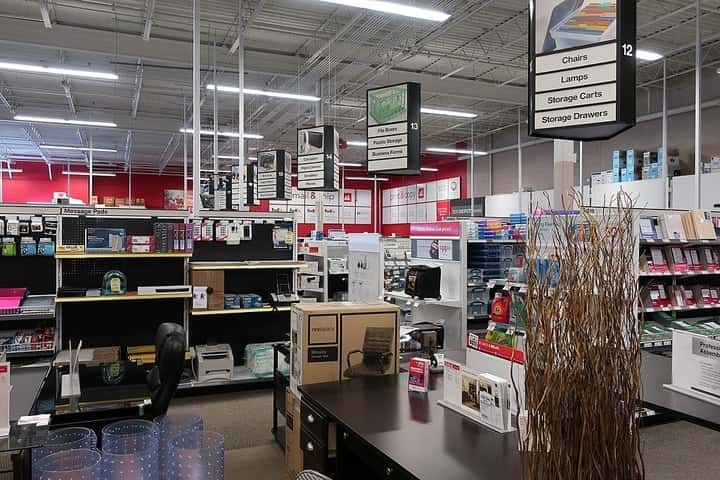
The Children’s Place
For many years, The Children’s Place has dominated the kids’ clothing retail biz. Kids grow so quickly that it sometimes feel like keeping clothes on their backs is an uphill battle, but even that factor combined with their top position can’t save them from declining sales and a harsh climate for brick-and-mortar stores. They operate more than 900 stores, but they’ll close 200 this year and 100 in 2021. Like many other retailers, they’ll be shifting the focus to e-commerce—a smart move in this crazy world.
AT&T
Life comes at you fast. Just a few years ago, AT&T announced that they’d be opening more than 1,000 new stores—and they already had 5,300 open at that time. Well, fast forward, and they’re about to shut down about 250 stores—a move that will sadly affect over 1,300 workers. Store employees are often the forgotten victims when these massive closures occur, but AT&T is hoping to keep some of the affected workers on in a different capacity. Let’s hope they stay connected!
Macy’s
It’s hard to imagine a world without that iconic five-pointed star—but we might have to start, as Macy’s is facing some serious trouble these days. Even before things went south in the retail world in 2020, they made a shocking announcement: that not only would they close 125 stores over the course of the next three years, they will also be closing many of their corporate offices, consolidating their operations to the one located in NYC, and laying off many of their head office employees—that’s thousands of jobs. Will the iconic department store become another casualty of the retail apocalypse?
Gap
Things have changed a lot from the days where Gap’s iconic advertisements ruled the airwaves and magazine pages in the 90s and early 2000s. The clothing chain, known for its affordable basics, recently revealed that they’ll be closing some 230 stores between now and 2022. It’s a big blow for the retailer, but they hope that less overhead costs at brick-and-mortar stores will lead to savings—another part of this plan is for them to reduce the size of some of their stores as well.
Microsoft
It ain’t easy when your main competition is the Apple Store. Microsoft announced that they’ll be closing their 83 remaining retail stores in 2020. Their new plan is for online-only sales, which totally makes sense. That said, they’ve kept the leases on four locations—one each in New York City, London, Sydney, Australia, and Redmond, Washington (if that seems like an odd choice, it’s not—it’s where they’re headquartered!). At these locations, they’ll open up a new type of store concept called an “experience center,” where customers can try their technology, without focusing on actual sales.
Olympia Sports
New England/East Coast stalwart sporting goods retailer Olympia Sports has been hit hard in the last few years and profits have declined considerably. As a result, a similar chain named JackRabbit put in a bid and bought them. Unfortunately, their new owner only bought half their locations, forcing them to liquidate and close 76 stores across the US. It’s a sad end for the chain, which began in 1975 in Portland, ME.
Christopher & Banks
This specialty retailer offering women’s apparel had 451 locations across the US as of February 2020, but they’re planning to close 30 to 40 of them by the end of the year. It’s for good reason, though—in the same season where they lost $8.8 million, their online sales shot up by 11%, so it’s a sensible choice for them to throw their resources into e-commerce.
Dunkin’
America may run on Dunkin’, but the world has also slowed down considerably. Does this mean there’s less need for our favorite fuel, then? With 450 locations closing this year, it may seem like it—but they’re not closing for the reasons you may think. Most of the Dunkin’ shops that will shutter this year are located inside Speedway gas stations along the East Coast, and Dunkin’ and Speedway have mutually agreed to close them. Most of them had limited menus, and since Dunkin’ recently dropped the “Donuts” to focus on an expanded menu, the closures make sense.
Guess
Guess what’s on deck for Guess? You guessed it—store closings (okay, we’ll stop). In 2020, the fashion retailer announced that they’d be closing 100 stores across North America and China over the coming year. This comes after previous waves of closures in 2016 and 2018. So basically, if you’re a Guess employee or shopper and your location makes it through this year—hold on tight for what 2022 has to offer.
Lucky’s Market
The Lucky’s Market slogan—“Organic food for the 99%”—seemed like a purposeful dig at the bougie crowd that Whole Foods has become known for. Sadly, it looks like that 99% was shopping at Whole Foods anyway. This Colorado-based grocery chain filed for bankruptcy this year and expects to close 32 of their 39 stores. The other seven, which are likely in high-demand markets, will go up for sale. Kroger’s originally invested in the chain a few years ago, hoping to make a significant stake in the organic food share of the market, but they couldn’t quite keep up with the Amazon-owned Whole Foods, and they backed out recently.
New York & Company
It hasn’t been a great year for New York & Co. or their parent company RTW Retailwinds. It began with a slow Christmas season last year, followed by the announcement that they’d close 25 retail stores after they saw that they were getting way more action online. This was even before things went down in March of 2020 stores temporarily shut their doors worldwide. Since then, they’ve filed for bankruptcy and it looks like they’ll close most, if not all of their stores.
Stage Stores
Stage Stores is the driving force behind discount retailers like Bealls, Gordmans, Goody’s, and Peebles. Behind the scenes, they’ve been having trouble since the holiday season last year. Sadly, the rough circumstances of spring 2020 spelled the end of this century-old company, who filed for Chapter 11 and announced that they’d be closing all 738 of their stores. Take a bow, Stage.
Victoria’s Secret
In a fast-moving world, Victoria’s Secret seems like something of a dinosaur—averse to change and progress. As the brand seems to decline in relevancy, its sales match—and about one-quarter of their 1,000-odd stores will close by the end of the year as a result. The board has named a new interim CEO and he told analysts that he expects more stores to close in 2021 and 2022.
Destination Maternity
In 2019, Destination Maternity announced they’d be filing for Chapter 11 bankruptcy and closing a number of stores in the meantime—around 183 locations. The retailer also owns A Pea in the Pod and Motherhood Maternity. If your destination was one of their brick-and-mortar stores, grab your laptop and head to the couch instead. Motherhood Maternity is still currently selling apparel and accessories for expectant mothers online. If you haven’t had enough puns yet, the company is calling their restructuring plans “Destination Forward.” Here’s hoping!
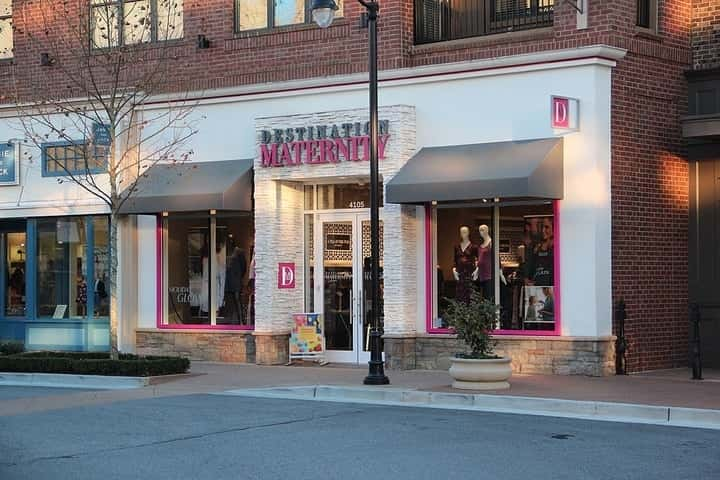
Petsmart
It wasn’t too long ago that pet supply retailer Petsmart bought e-tailer Chewy, hoping to get a bigger bite of the online sales market. It was the most expensive online retail store purchase in history—but did it pay off? The sale left the chain, which is the largest brick-and-mortar pet supply store out there, in a lot of debt. It's impossible to say whether Petsmart will dig itself out of the hole it got itself into when it acquired Chewy.

J. Crew
J. Crew has been selling preppy and sporty clothing essentials for decades. It's the owner of popular subsidiaries like Madewell—but even that couldn’t stop them from declaring bankruptcy this year. J. Crew was facing issues long before the troubles of March 2020, though. This led Business Insider to recommend using any gift cards you might have for the clothing retailer now, just in case things get really rough and they close unexpectedly.
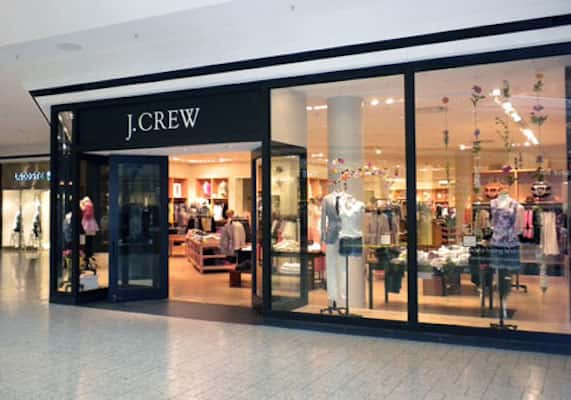
Payless
Speaking of bankruptcy, Payless ShoeSource was another retailer to file for Chapter 11. However, in a stunning attempt to recoup losses, the discount footwear retailer sued Martha Stewart Living Omnimedia Inc. for $1 million. They had made a payment in that amount to MSLO Inc. shortly before declaring bankruptcy. If they’d waited, the bankruptcy filing would've wiped that debt. Sadly, it’s too little too late, as Payless closed all retail locations following their second bankruptcy in 2019.
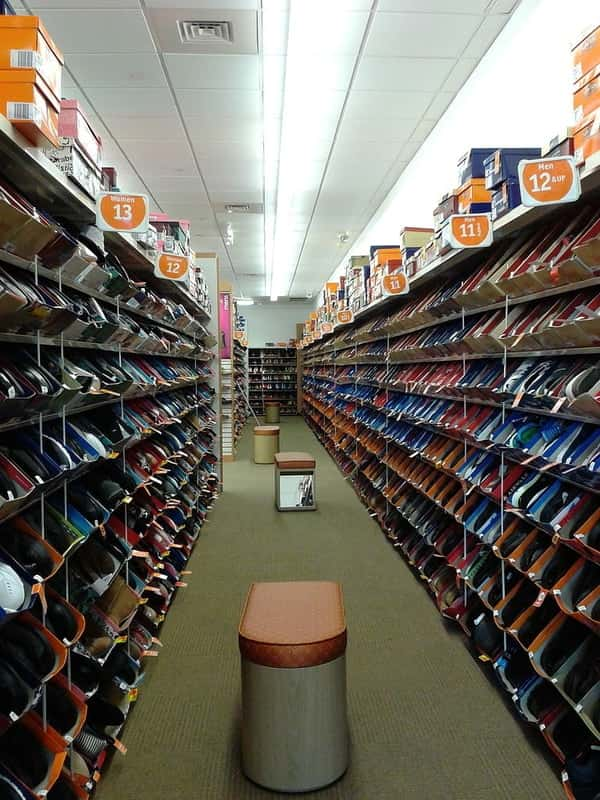
Toys ‘R’ Us
One of the most devastating losses was that of Toys ‘R’ Us. That’s no exaggeration, as it was the third-largest retail bankruptcy ever. Their crushing $5 billion debt set them down a path to destruction that there was no coming back from. They were one of the biggest casualties of the retail apocalypse. Perhaps the stores on this list facing doom can learn from their mistakes.
